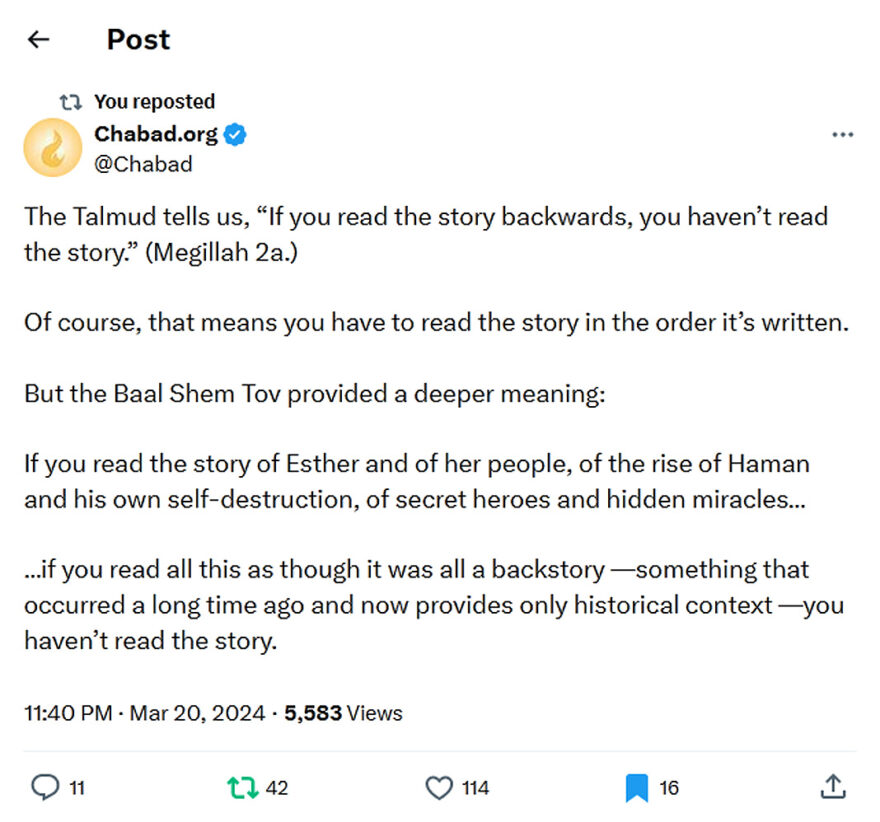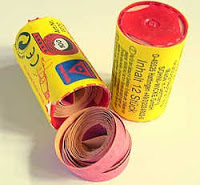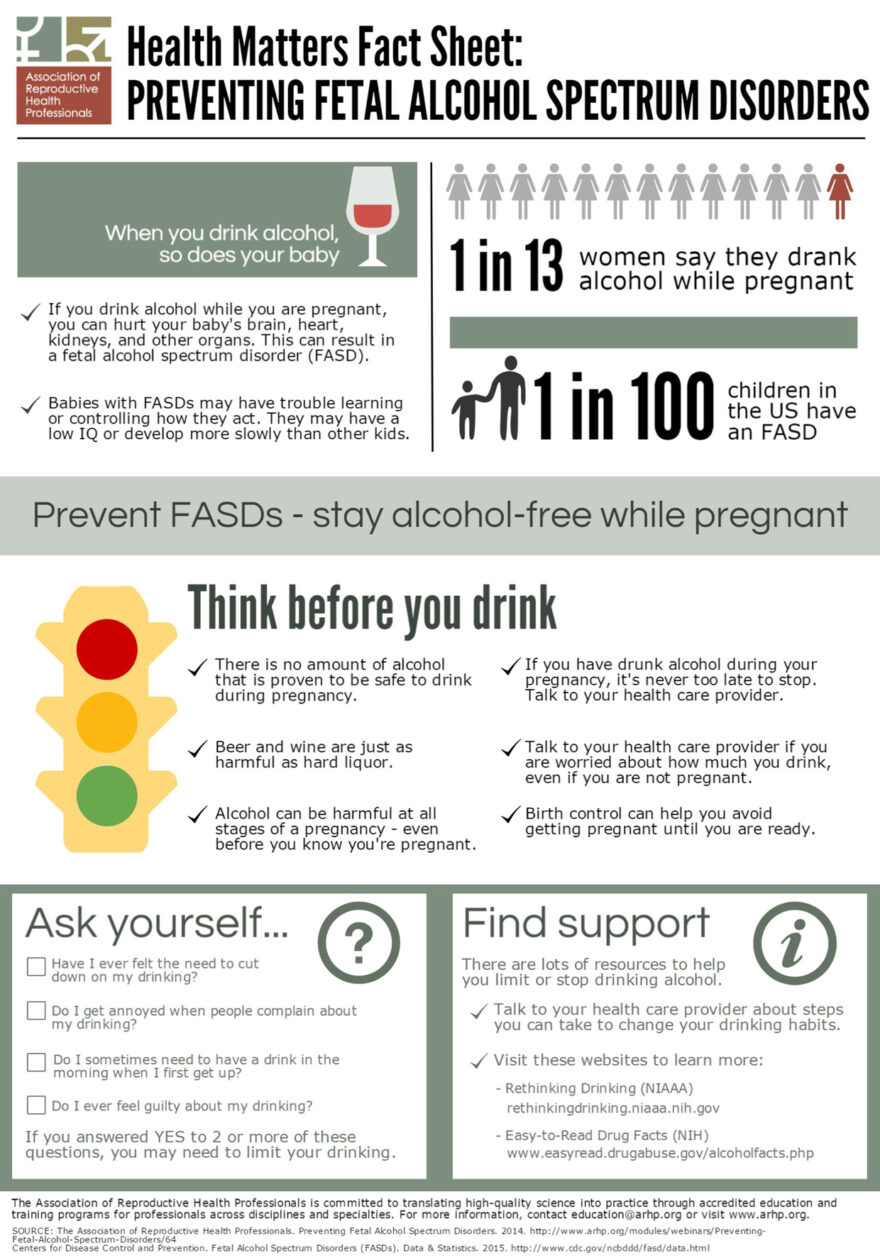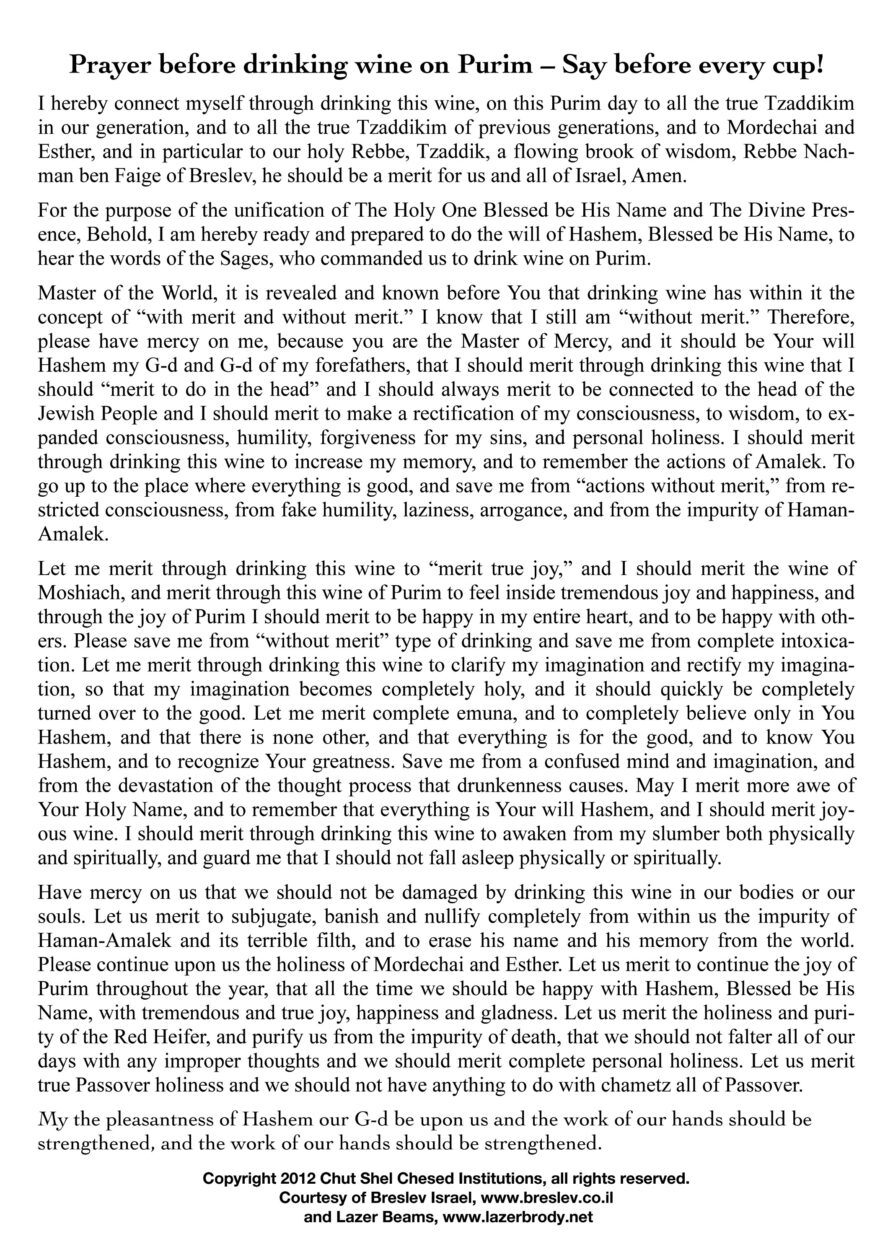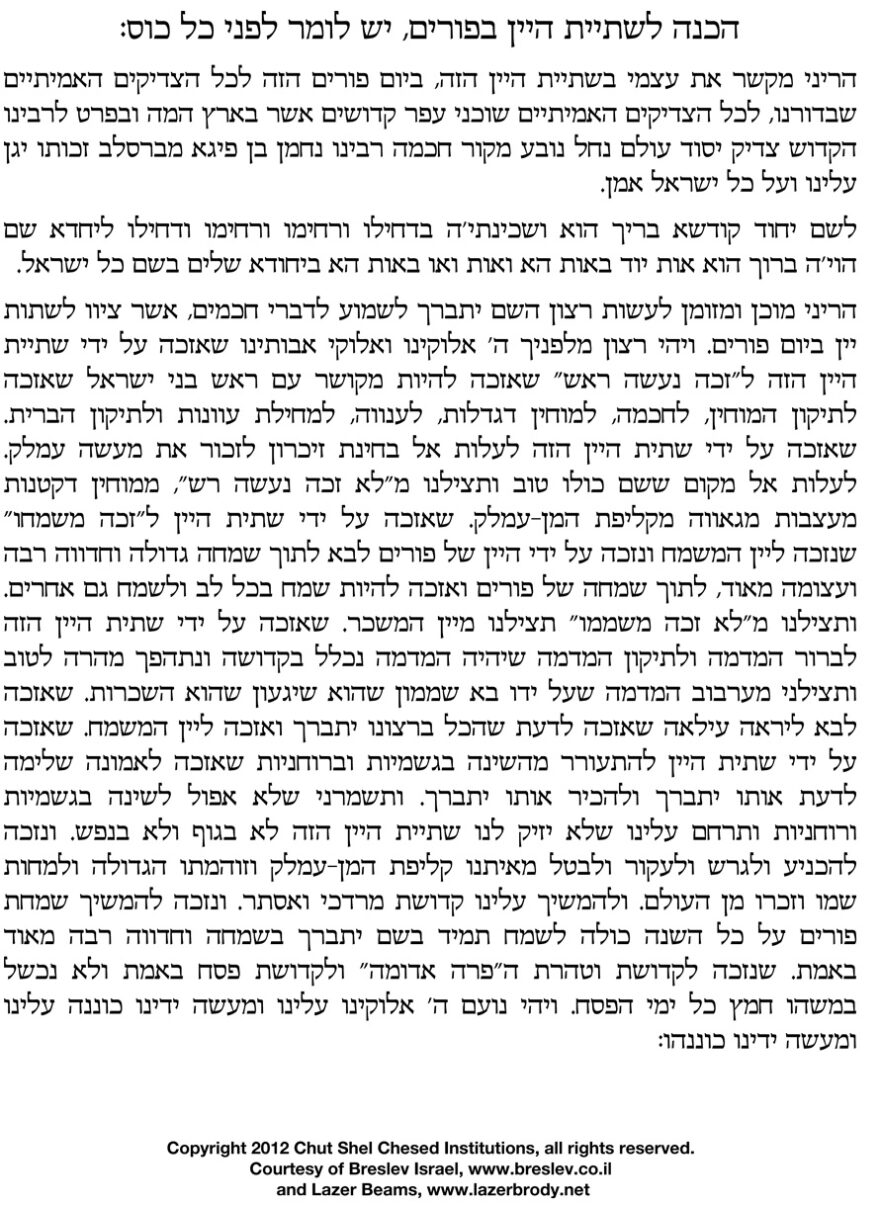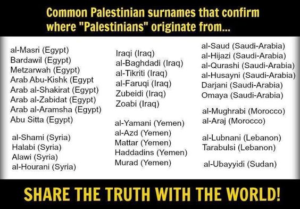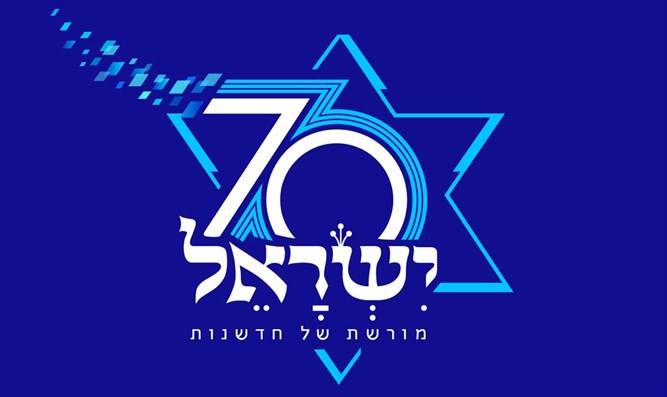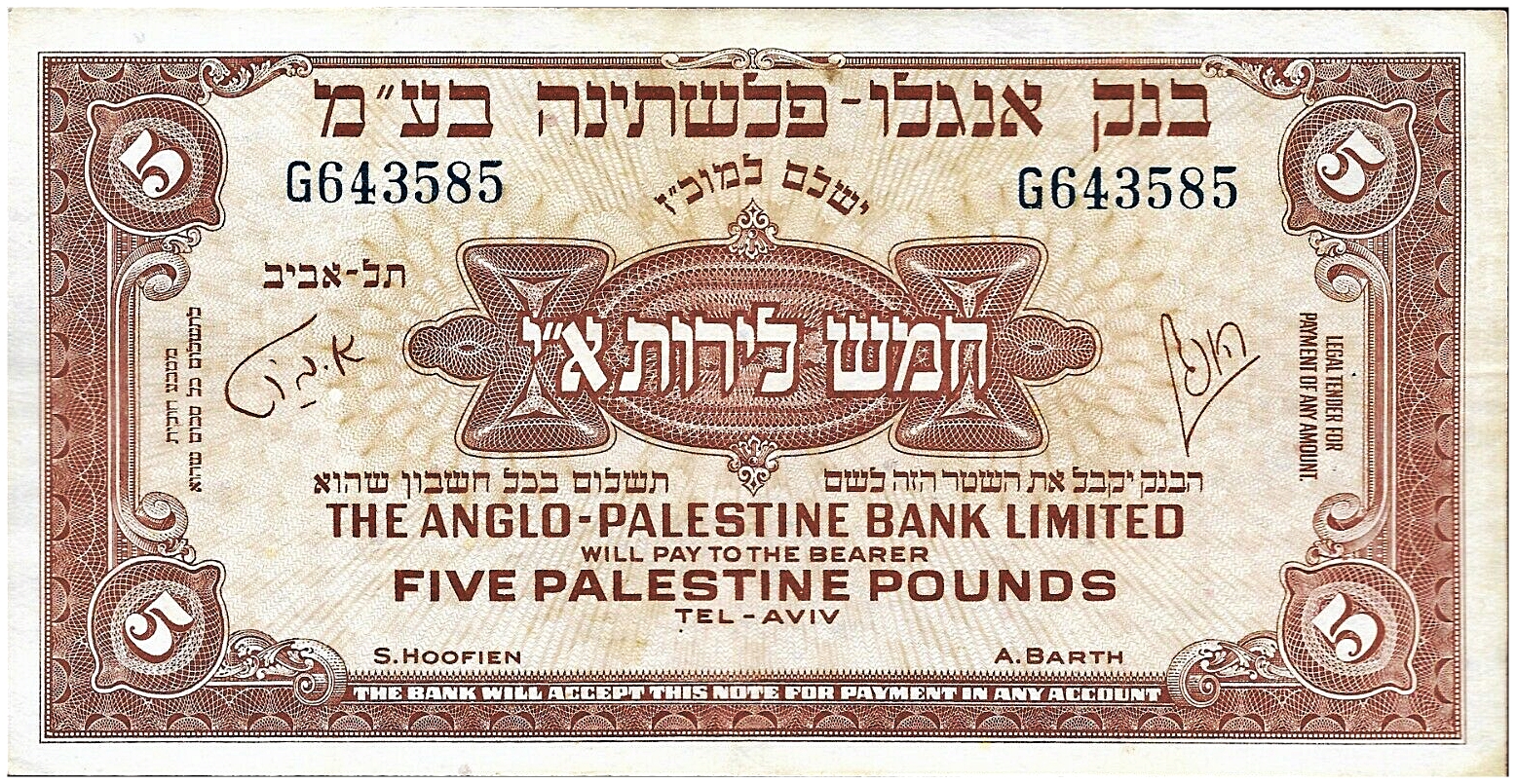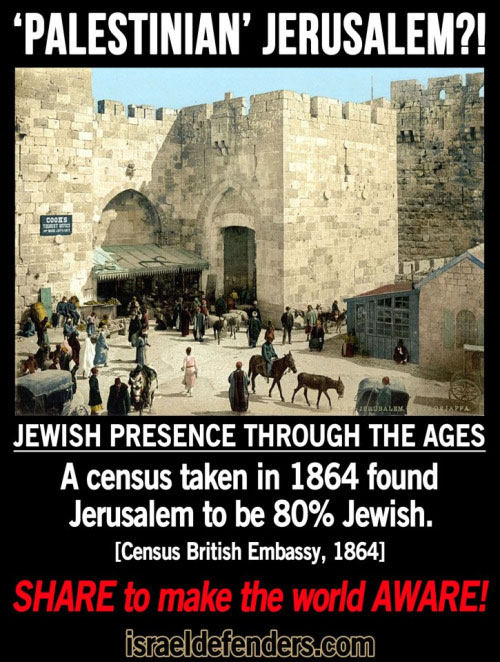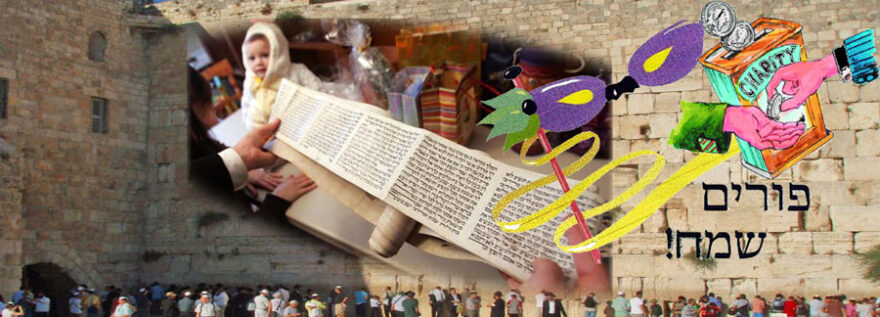
Coronavirus COVID-19 Update Coronavirus: Purim impact and Torah Tidbits Purim SpecialAfter you have:
|
|

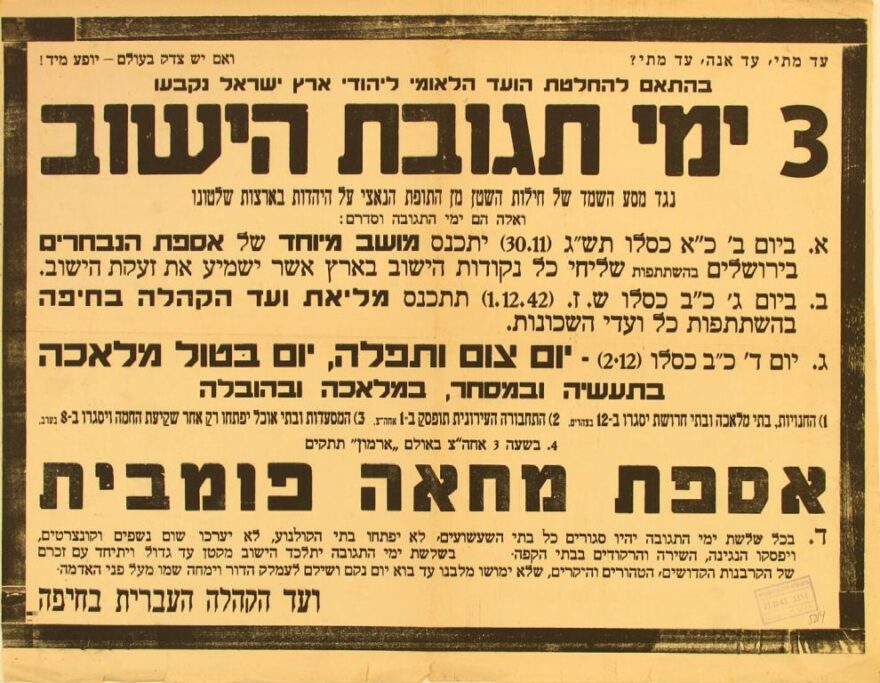 An announcement of the Haifa Jewish Community Committee declaring 3 days of events against the Nazi inferno: including a day of fast and prayer, a day of cessation from work and a public protest assembly, 1942 Fasting Guide for those Participating in the 72-Hour FastFrom:Yeranen Yaakov 17March2016 http://yeranenyaakov.blogspot.co.il/2016/03/fasting-guide-for-those-participating.html
Fasting Guide The Three Days May our prayers and fasting bring about an end to our suffering and the beginning of our personal and national redemption. Amen.
This is just like in Eretz Israel in 1942: The first concrete news describing the final solution came to the attention of the heads of the Jewish community through Chaim Barlas, a representative of the Jewish Agency in Geneva, August 1942. When The Gedolim גדולים found out they prayed and fasted; then Institutions of the Yishuv declare three days of mourning from 30November1942 – 2December1942.
|
|

Powerful Prayer DayMARCH 20, 2016 http://shiratdevorah.blogspot.co.il/2016/03/powerful-prayer-day.html
Many classic sources tell us that Purim represents a special opportunity for one’s prayers to be answered.
The Sefer Kav HaYosher says the following: Taanis Esther is a day that is very auspicious for one’s prayers to be answered in the merit of Mordechai and Esther. Whoever needs mercy for any particular needs should put aside time for themselves and do the following: First, recite Chapter 22 in Tehilim. Then, pour out your heart to Hashem and ask for all your needs and mention the merit of Mordechai and Esther [whose merits saved us from Haman]. The Gates of Mercy will be opened and your prayers will be accepted beratzon.
More segulot for Purim at Zchus Avos
The Ritv”a in his commentary to Megillah 7a quotes the Talmud Yerushalmi which explains regarding the fulfillment of the obligation to give matanos la’evyonim [gifts to the poor] on Purim, that kol ha’posheit yado leetol yitnu lo – we give to anyone who extends his hand to receive”. This is to say that on this festive day we give money to everyone who asks, without first checking to see if they truly are poor and worthy of receiving tzedakah funds. The Chasam Sofer writes that just as we are not particular if the people to whom we give charity on Purim are truly deserving, and whoever extends his hand gets helped, so, too, does G-d listen to all our prayers on this special day, and kol ha’posheit yado leetol yitnu lo – He gives to anyone who extends his hand to receive. Also see: Purim’s Golden Opportunity
|
|

A Guide to PurimHere is a practical day-to-day guide for celebrating the three days of Purim (Fast of Esther, Purim, and Shushan Purim).Breslev Israel staff | Posted on 20March2024 | https://breslev.com/323154/ The Difference between Purim and ChanukahThe reason that the Sages instituted drinking and feasting on Purim and not on Chanukah is as follows: In the days of Mordechai and Esther, the Jews sinned through eating, by partaking of the feast of Achashverosh. This was a physical sin, and therefore they were endangered, measure for measure, with physical annihilation. In contrast, in the days of the Hasmoneans, the Jews sinned through assimilating into Greek culture and thereby ignoring the study of the Torah. They were endangered not physically, but spiritually, in that the Greeks wanted to outlaw the practice of Judaism. Therefore, the commemoration of the miracle of Chanukah is chiefly through verbal observance — praise and thanksgiving — which emphasizes the spiritual. Purim is chiefly observed through drinking and eating, which emphasize the physical. (B’nei Yissachar, by Rabbi Tzvi Elimelech from Dinov)
Before the Fast of EstherTypically, the Fast of Esther is on 13 Adar. This year, 2024, the Fast falls on Shabbat. As a result, the Fast of Esther is moved earlier to Thursday, 11 Adar, 21-Mar-2024.
The commandment of the Machatzit HaShekel appears in the Torah (Shemot 30: 11-15) and was kept during the Holy Temple period. In our times, it has become a custom and a mitzvah with a wonderful reward for everyone who keeps it. To read about this important mitzvah and to donate, click here.
Don’t forget to get started on the hamantashen and the Purim seudah (festive meal)!
Fast of EstherThe fast starts before dawn on Thursday, 21-Mar-2024, and ends after dark. The fast includes no eating or drinking. There are special services at synagogue both morning and afternoon. The money saved by not eating should go to charity; the time saved should go to Torah-study and mitzvah-performance.
This is also the time to perform the mitzva of commemorating the Machatzit HaShekel, where every family participated in purchasing the sacrificial animals for the Holy Temple for the coming year. We do this by giving charity.
Purim and Shushan PurimPurim day is 14 Adar (motzei Shabbat 23-Mar-2024 through sundown on 24-Mar-2024).
For walled cities such as Jerusalem, Purim day is 15 Adar (sundown on Sunday 24-Mar-2024 through sundown on 25-Mar-2024) and is called Shushan Purim. Inhabitants of cities that were important enough to be surrounded by walls at the time of the Jews’ entrance into the Holy Land at the time of Joshua celebrate Purim one day later than everyone else (see Esther 9:17-19). The prime example is that of Jerusalem. The status of Tzafat and several other cities in Israel is unclear, so the day is celebrated somewhat in addition to regular Purim, “just in case.” (When the date of Shushan Purim falls on Shabbat, in Jerusalem they read Megillat Esther on Friday, say the Purim prayers on Shabbat, and have the festive Purim Meal on Sunday. Three days of Purim!)
Purim Day MitzvotThese mitzvot characterize the day:
Breslev Israel wishes you and yours a very happy Purim!
|
|
Purim is NOW! if you read all this as though it was all a backstory
Of course, that means you have to read the story in the order it’s written. But the Baal Shem Tov provided a deeper meaning: If you read the story of Esther and of her people, of the rise of Haman and his own self-destruction, of secret heroes and hidden miracles… …if you read all this as though it was all a backstory —something that occurred a long time ago and now provides only historical context —you haven’t read the story.
|
|

Coronavirus briefs: Purim impact, increasing travel restrictionsby Reb Akiva at Mystical Paths 05March2020 https://www.mpaths.com/2020/03/coronavirus-briefs-purim-impact.html  Purim-Coronavirus-Mishloach Manot: Corona Extra Beer, Alco-Gel Hand Sanitizer, DEXAMOL Fever Reducer/Pain Killer, Tea and Medical Protective Face Mask Mishloach Manot – shalach manos, the mitzvah of sending gifts to your friends, is a major requirement of Purim. As is hearing the Megillah, having a seudah (large Purim meal) and generally partying, being happy and being very social. “Based on the rulings of Gedolei HaPoskim” – During an epidemic, one should fulfil the mitzvah of Mishloach Manot with just one or two people and instead give more “matanot l’evyonim” – gift charity to the poor. – If authorities declare no gatherings or limited small gatherings, people should not get together in synagogue (for general prayer or to hear the Megillah on Purim). People should instead, staying within the rules given by government and health authorities, make small groups, or just a minyan if that size is allowed, or just 15-20 people well spaced out or masked – to read/hear the Megillah. Hearing through a window or doorway or some distance away is still fulfilling the mitzvah, spread out for safety (more of a problem with children). – If someone is unable to hear the Megillah, (some authorities say) he/she should recite Hallel (instead) without a blessing. – If one can only hear the Megillah once, better day than night. – The Purim Seudah should be kept to small groups such as immediate family (minimise the possibility of group infection). – Heavy drinking and excessive partying while people are suffering from an epidemic is inappropriate. Stay subdued. (Nobody needs pictures of drunken Jews partying appearing on Facebook opposite people in intensive care struggling to breathe.) On the topic of travel, and/or visiting Israel or traveling from Israel to the US for the holidays: — Many European and Asian airlines have suspended travel to Israel as of today until … (the middle of the month, the end of the month, unknown). — United Airlines and Jet Blue in the U.S. have significantly reduced their flight schedule, as less people are flying and as staff is affected by quarantines. — Israel has increased travel restrictions, stopping entry or requiring everyone coming to immediately enter 14 day quarantine upon entering from France, Switzerland, Australia, Spain, Germany, Italy, Austria, Taiwan, Singapore, Thailand, China, Japan, Hong Kong, Macau, South Korea. — Anyone even changing planes in Italy, China, or South Korea gets the 14 day quarantine upon arriving in Israel. (Israeli Ministry of Health Corona site in English for travellers.) ADVICE – High probability things get worse before they get better, more flights will be cancelled, more restrictions added, more events cancelled. Some airlines and hotels may go out of business – make sure you’ve paid with a credit card that gives an easy refund in such a situation (U.S. credit cards are pretty good about this). I advise to cancel and re-plan while you can (while you can get a refund) – or at least have a backup plan in case your primary plans end up in the toilet. Don’t freak out, think through an alternative “just in case”. As things get worse for a while, you may be able to travel but not return (for some weeks/months) – keep that in mind and plan appropriately. (If mother is coming to visit, that may not be so bad [as long as she can get her medications where you are]. If you and the 5 children went to visit mother, that may be…challenging.) IN ISRAEL – — Large gatherings forbidden (sporting events, stadium events, concerts) For an example of worse or “farther along”, take a look at Italy, all schools closed nationwide and no public events that don’t allow “1 meter separation”. RUMORS – – Events over 100 people may be prohibited. May Hashem grant a quick solution and end to this plague, keep all klal Yisroel and everyone safe and healthy. Pray, think, prepare. Torah is Toras Chayim, you are required to take steps to live and not risk your life unnecessarily. |
|
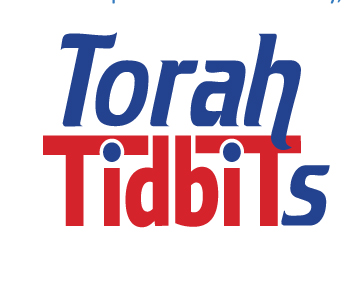
PURIM REVIEW from Torah TidbitsTorah Tidbits #1363 Tetzaveh Pg. 61 07March2020 TAANIT ESTHER is the same day whether you celebrate Purim on the 14th or the15th of Adar. Times in the Schedule (p.48). Zeicher L’Machatzit HaShekelcan be at Mincha of Taanit Esther or before Megila reading. Common amount is 3 half-shekel coins. Some give the value of the original sliver half-shekel, which at today’s price of silver and the current exchange rate is around 20NIS. Remember -we don’t give Machatzit HaShekel without a Beit HaMikdash, we give ZEICHER – commemorative of it. AL HANISIM Said in the Amida in the B’RACHA of MODIM and in Birkat HaMazon in the B’RACHA of NODEH L’CHA. If you forget AL HANISIM in the Amida, do NOT repeat it. If you catch your omission before HaShem’s name in HATOV SHIMCHA… go back and say it. If you already said HaShem’s name, finishthe Amida and before you say YIHYU L’RATZON…and take your steps back, say Al HaNisim with a modified opening sentence: Similar for Birkat HaMazon. Before HaShem’s name in AL HAARETZ V’AL HAMAZON, go back and say it. After HaShem’s name, continue until right before HARACHAMAN HU Y’ZAKEINU and say it with themodified opener, as above. From here to there Jerusalemites who go outside for 14 Adar and outsiders who cometo Jerusalem for our Purim should ask a Rav whatis and is not required of you on the other day. Torah Reading is from the end ofB’shalach – VAYAVO AMALEK… If you missed ZACHOR, you should ask the Baal Korei to have the Mitzva of ZACHOR in mind, and you should have KAVANA likewise. MEGILA READING Required TWICE, at night and in the day (morning is most common). KAVANA should include the Mitzva of Megila andthe publicizing of HaShem’s miracles. The b’racha of SHEHECHEYANU in the morning covers the other mitzvot of the day. (Have them in mind.) MATANOT LA’EVYONIM are gifts to the poor – usually money (be generous, more than you spend on Mishlo’ach Manot). Best to give on Purim day. Giving it earlier to someone who will distribute it on Purim day is also okay. MISHLO’ACH MANOT are gifts of foods (min. two kinds) to friends (or just otherJews) – who are observing Purim the same day you are. One MM is sufficient, but most people give multiple times. SEUDAT PURIM is a festive meal in the afternoon of your Purim day. Those who havePurim on the 14th, should plan to continue their Seuda a little into the night of the 15th. Those who celebrate on the 15th, need not extend their Seuda. The proper custom on Purim is to drink more wine than you usually do. A bit more is sufficient. It isdefinitely NOT PROPER to get drunk on Purim (nomatter how many fine upstanding Jews of your acquaintance do). In most cases, excessive drinking turns out not to be in line with SIMCHAT PURIM. Be careful. And watch out for your family members. On the lighter side – wine, the only drink thatreally belongs on Purim, is mentioned in the megila6 times, but beer is mentioned 10 times – as inSHUSHAN HABIRA. (Purim joke). Enjoy!
The Most Frightening Moment?What is, to your mind, the most frightening moment of the Purim story? I will admit that this question might seem somewhat strange. Purim, after all, is not an occasion designed to inspire fear. Celebration, merriment, frivolity, are much more the order of the day. And yet, I would argue that there many candidates for the most frightening moment of the Purim story. Rooted at the historical juncture when our first national exile (the Babylonian Exile) becomes an exile of choice, Purim emerges as a paradigmatic tale of narrowly missed national tragedy. Through its events, Hashem delivers a message to the vast majority of Babylonian Jews who choose not to return to Israel, but to remain behind under Persian rule: If it’s galut you want, its galut you will get. I will show you what diaspora existence truly means, in all of its “glory.” Not by accident, therefore, the Purim story is populated by phenomena that will appear over and over again in the long exile journey of our people: overwhelming instability (v’nahfoch hu); God’s hiddenness (hester panim); irrational hatred of the Jew (Haman); a complicit world (Achashveirosh); martyrdom (Esther); and more. Not by accident, as well, Jewish communities and families across time will view Purim as a paradigm for their experience. Dozens of these groups, upon narrowly escaping tragedy, will establish their own unique celebrations and refer to each as “Purim of [the community/family].” The classical Purim story is seen by these individuals as a serious tale, foreshadowing their own story and other stories like theirs across the face of history. Which brings us back to our original question. Given the serious, prescient character of the Purim narrative, what is, to your mind, the most frightening moment in the tale? Is it when Esther is taken to the king’s palace on a journey from which she is never to return? Is it when Haman rises to power, or when he irrationally threatens the entire Jewish population of Persia with destruction? Perhaps it is the dramatic moment captured by the Megilla as it contrasts Achashveirosh’s and Haman’s callousness with the consternation caused by their edict: “And the King and Haman sat down to drink and the city of Shushan was astonished.” Are you captivated by Esther’s plaintive plea as she initiates her voluntary audience with the King: “And if I will be lost, I will be lost”? Or are you moved most by the extent of Achashveirosh’s pitiless cruelty as he mandates civil war in the streets of his kingdom; refusing to withdraw the edict against the Jews, instead permitting their right to self-defense? A pox on both your houses, the king affirms. Let blood run through the streets of my cities. As long as I am not involved. Truth be told, the Purim story is filled with frightening moments… My choice, however, for the most frightening moment of the Purim story is actually none of the above. It is a choice that will probably surprise you. Travel back with me the following scene. Mordechai, dressed in sackcloth, has arrived at the gates of the palace. Forbidden to enter in clothes of mourning (a clear indication of the king’s determination to keep his subjects’ pain at an arm’s length), Mordechai sends a message to Esther informing her of the edict against the Jewish population. He asks her to gain an audience with the King in order to plead on behalf of people. Esther demurs. She explains to Mordechai that the king (in yet another attempt to totally control his own insular existence) summarily executes anyone who appears before him without being summoned; only sparing those to whom he extends his scepter. She points out that she, personally, has not been summoned to the king for 30 days. Esther apparently hesitates to take a chance… How would we expect Mordechai to react to Esther’s concerns? We would suppose, I think, that Mordechai would appeal to Esther’s sense of duty and responsibility. How can you send me such an answer? Will you not risk your life to save your nation? Are you willing to stand idly by as your brothers and sisters are murdered in a government sanctioned pogrom? Startlingly, however, Mordechai’s initial response to Esther is totally different. He immediately retorts: “Do not think in your soul that those in the king’s palace will be spared the fate of all the Jews. For if you remain silent at this time, relief and deliverance will come to the Jews from another place, while you and your father’s house will perish.” Effectively, Mordechai argues: Esther, don’t think that you are safe. Don’t assume that your place in the palace will spare you from the fate of your people. If you fail to act, your people still survive, but you will not. Only after conveying that warning, does Mordechai appeal to Esther’s higher sensibilities. “And who knows whether it was specifically for a time like this that you attained a royal position.” How are we to understand Mordechai’s initial response to Esther? Does he really imagine that Esther is only concerned for her own safety? Does he not know the true character of the extraordinary woman who grew up in his own home (and who, according to midrashic tradition, actually became his wife)? Mordechai’s concerns can be understood once we clearly define the source of his fear. Esther has, after all, spend considerable time by now in the palace of Achashveirosh. She has been exposed to a monarchy that is completely defined by its desperate desire for distance from an outside world. What happens outside my palace gates, Achashveirosh insists, stays outside my palace gates. As long as I am safe, as long as I can continue to live in the palace world of my own creation, I do not care what happens to my subjects. Mordechai understands the powerful effect that living in such an environment can have, even upon someone as strong as Esther. Is it possible, he wonders in fear, that my dear Esther has actually been changed? Has Esther, without her own awareness, become uncaring? Has she begun to become like “them?” Desperate to convince Esther to appear before the king, therefore, Mordechai argues the only way that he can. Esther, do not think that you are safe. Only after making that argument does he then appeal to the Esther whom he has known for years; to the Esther who can and will rise up to save her people, even at great cost to herself. And, indeed, Esther does take heroic action. For the sake of her nation, she takes a step that not only endangers her life, but according to rabbinic tradition, seals her spiritual fate. “And if I am lost, I am lost,” she says to Mordechai. By initiating, for the first time, a voluntary audience with the King, I will have crossed a line of no return. I will be lost to my people forever. Here, then, what is, to my mind, the most frightening moment of the Purim story; the moment when Mordechai fears that Esther may have changed. His fear underscores the second great danger of living in an alien, evil world. For while you can easily become a “victim” in such a world; you can just as easily become a “perpetrator”. You continually run the risk of letting that world change you, of allowing those around you to make you like “them.” As we enter the Purim/Pesach season, a time of focus on the history of our people, we should once again recognize what may well be our greatest accomplishment as a people. Not simply that we have survived; but how we have survived. Surrounded by hate, we have refused to become haters; surrounded by lies we have invariably spoken the truth; surrounded by immorality, we have remained moral. Guided by our Torah and tradition, we have fulfilled our responsibility of being a “light unto the nations.” Against all odds, we have remained, in our hearts and souls, largely unchanged by the world around us. And now, as we build our homeland anew, we once again refuse to become like “them.” Our textbooks do not preach the wanton murder of our enemies; we struggle with democratic process while surrounded by tyranny and oppression; we strive for peace with our neighbors in the face of aggression; we vigilantly protect our own interests, yet struggle to respect the rights of others, as well. And when we misstep, as we invariably will, we honestly recalibrate and do our best to regain our footing. In the turbulent months ahead, as our nation faces momentous decisions, we pray that HaShem guide us in our struggle against all threats presented by our enemies. May we secure a safe, strong future for ourselves, our children and our grandchildren. And may we always remain the people that we are; fundamentally unchanged by those around us; true to our God, our heritage and ourselves. |
|
A Purim Warning to American JewsHorrific Poway Chabad House ShootingApril 29, 2019 Chabad of Poway, California, Just a reminder of what the America was like in 1939 before World War ll. Field of Vision – A Night at the Garden from Field of Vision on Vimeo.In 1939, 20,000 Americans rallied in New York’s Madison Square Garden to celebrate the rise of Nazism — an event largely forgotten from U.S. history. A NIGHT AT THE GARDEN, made entirely from archival footage filmed that night, transports audiences to this chilling gathering and shines a light on the power of demagoguery and anti-Semitism in the United States. Directed by Marshall Curry See more from Field of Vision here: fieldofvision.org For more on the rally, read a Q&A with Marshall Curry here: Comment: Philip K. Dick’s “Man in the High Castle” was correct. |
|
Chaya Malka Burn FoundationPrevention and RecoveryPurim Burn Prevention PostP U R I M CAPS for Cap Guns ARE E X P L O S I V E!February 20, 2013 by Chaya Malka Its not just big bangers and fire-crackers that are dangerous. Regular caps can endanger life. Let’s learn from one families serious injury, “Our son was terribly burnt and injured on Purim from caps that exploded in his pants’ pockets with a massive BOOM. It was a miracle that the pants didn’t carry on burning. The manufactures of these caps know they’re EXPLOSIVES! The tiny “how to use” warning on the package, is barely legible and needs magnification to read. The caps rub together creating friction. Touching them heats them further. So the manufacturers write not to put them in a pocket – do they really think kids will keep them somewhere else!? They say “Don’t touch the caps, keep them in their packaging”- so how do they get into the cap-gun? They say “only to be used with adult supervision” – as if an adult could prevent the injury! In fact I was sitting next to my son at the time of the EXPLOSION!” My son’s entire right arm and both legs had to be bandaged for months. Looked very unpleasant… What about under the bandaging? Hand burns can leave scars that seriously limit hand and finger movement and require lengthy physiotherapy treatment. My son’s leg wounds were very serious especially on points where the inflammable material exploded directly into them, causing terribly painful deep cuts and loss of skin.(see photos in sidebar). Treating burns requires daily washing to prevent infection and regular bandage changing. The treatment required spreading special creams on the burn- which is extremely painful. The effected skin had to be peeled off to allow new tissue to grow. The pain following the explosion was indescribable and the suffering continued for weeks. Recovery from burns is a long, slow, painful process. Today’s caps are made all over the world from cheap materials to save the manufacturers’ money. They are cheap and deadly! Baruch Hashem our son recovered but every year the hospitals are inundated with kids suffering injuries from the caps, such as serious burns, lost fingers and horrific facial injuries…Don’t allow any EXPLOSIVE “toys” in the house! Explain to your children their dangers – they shouldn’t touch them or go near them. Do everything you can to motivate your kids NOT to use caps. Caps can cause years of suffering, pain, and misery. Tell the teachers at schools to warn students. Tell your friends! Please spread the word however you can! Caps are EXPLOSIVES !! |
|
Don’t Drink and Drive
|
|
Protect Jewish Girls on PurimJewish women and girls are not allowed to drink on Purim Preventing exploitation of Jewish Girls in Israel through intervention and Empowerment http://www.learnandlive.org.il/
KNESSET_REPORT_ON_THE_WELFARE_OF_THE_CHILD_2012_ENGLISH_TRANSLATION 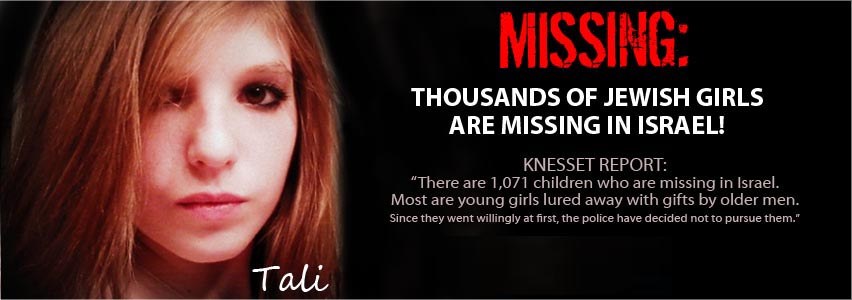 Preventing exploitation of Jewish Girls in Israel through intervention and Empowerment http://www.learnandlive.org.il/
|
|
Fetal alcohol spectrum disorder
https://en.wikipedia.org/wiki/Fetal_alcohol_spectrum_disorder Fetal alcohol spectrum disorders (FASDs) are a group of conditions that can occur in a person whose mother drank alcohol during pregnancy.[1] Symptoms can include an abnormal appearance, short height, low body weight, small head size, poor coordination, behavioral problems, learning difficulties, and problems with hearing and sight.[1][2] Those affected are more likely to have trouble with school, the legal system, alcohol, other drugs, and other areas of high risk.[9] |
|
Prayer before drinking wine on Purim – Say before every cup RAV ELIEZER BERLAND’S PRAYER FOR PURIM Click to enlarge image |
|
Click to enlarge image |
|
| Kitzur Shulchan Aruch Laws of the Megillah Ch. 141:1-23 הלכות מגילה 141:1 [משנכנס אדר] From when the month of Adar begins, [מרבים בשמחה] we increase (our) joy. [וישראל שיש לו דין ודברים עם אינו יהודי] A Jew who has a dispute with a non-Jew, [ישפוט עמו בחודש זה] should have the judgment with him in this month.1 1) The month of Adar is considered a favorable time for Jews. [From when the month of Adar begins,] משנכנס אדר [we increase (our) joy.] מרבים בשמחה [A Jew who has a dispute with a non-Jew,] וישראל שיש לו דין ודברים עם אינו יהודי [should have the judgment with him in this month.] ישפוט עמו בחודש זה א 141:2 [בימי מרדכי ואסתר] During the time of Mordechai and Esther, [נקהלו היהודים בשלשה עשר לחדש אדר] the Jews gathered together on the thirteenth of Adar [לעמוד על נפשם ולהנקם מאויביהם] to defend their lives and take revenge on their enemies.1 [והיו צריכין לבקש רחמים] They needed to ask for mercy, [מאת ה’ יתברך שמו שיעזרם] from G-d, blessed be His name, to aid them. [ומצינו שכאשר היו ישראל במלחמה] We have found, that when the Jews were at war [התענו שיעזרם ה’] they fasted so that G-d would aid them. [וגם משה רבינו עליו השלום] Also Moses our teacher, may he be in peace, [ביום שנלחם עם עמלק התענה] when we waged war against Amalek, fasted. [ואם כן מסתמא גם אז בימי מרדכי ואסתר] If this was so, we can assume that also then at the time of Mordechai and Esther, [התענו ביום י”ג אדר] they fasted on the thirteenth of Adar. [ולכן קבלו עליהם כל ישראל יום זה] So this day has been accepted by the entire Jewish people [לתענית צבור ונקרא ”תענית אסתר”] as a communal fast and is called the ”Fast of Esther”, [כדי לזכור שהבורא יתברך שמו] in order to remember that the Creator, blessed be His name, [רואה ושומע תפלת כל איש בעת צרתו] watches and hears the prayers of each person in his time of difficulty [כאשר יתענה וישוב אל ה’ בכל לבבו] when he fasts and repents to G-d wholeheartedly, [כמו שעשה לאבותינו בימים ההם] just He did for our forefathers in those (Purim) days. [ומכל מקום אין תענית זה חובה כל כך] In any event, this fast is not such an obligation [כמו ארבעה תעניתים שכתובים במקרא] as the four fasts mentioned in the prophetic writings,2 [ולכן יש להקל בו בעת הצורך] Therefore, one should be lenient in a time of need, [כגון מעוברות ומניקות] for example, pregnant and nursing women, [או אפילו חולה קצת בכאב עינים] and people who are ill, even one who merely feels pain in his eyes, [שאם מצטערים הרבה לא יתענו] need not fast if they suffer great discomfort. [וכן יולדת כל שלשים יום] Similarly, a woman who has given birth within thirty days [וכן חתן בתוך שבעת ימי המשתה שלו] and a groom during the seven days after the wedding, [אינו צריך להתענות] do not have to fast. [ויפרעו את התענית אחר כך] These people should ”repay” this fast at a later date.3 [אבל שאר הבריאים] In contrast, other individuals who are healthy [לא יפרשו את עצמם מן הצבור] should not separate themselves from the community [ואפילו מי שהולך בדרך וקשה עליו התענית] Even a person on a journey for whom the fast is difficult [מכל מקום צריך להתענות] is required to fast. 1) Haman had convinced the Persian king, Achashverosh, to sign a decree allowing the Persian population to destroy the Jews on the 13th of Adar. When Haman was hung and Mordechai appointed chief advisor in his place, the king signed another decree allowing the Jews to defend themselves and attack their enemies on the 13th of Adar – see the ”Book of Esther” 2) See also Ch. 121. 3) That is, they should fast for a day in the future, to make up for not fasting during the Fast of Esther. [During the time of Mordechai and Esther,] בימי מרדכי ואסתר [the Jews gathered together on the thirteenth of Adar] נקהלו היהודים בשלשה עשר לחדש אדר [to defend their lives and take revenge on their enemies.] לעמוד על נפשם ולהנקם מאויביהם [They needed to ask for mercy,] והיו צריכין לבקש רחמים [from G-d, blessed be His name, to aid them.] מאת ה’ יתברך שמו שיעזרם [We have found, that when the Jews were at war] ומצינו שכאשר היו ישראל במלחמה [they fasted so that G-d would aid them.] התענו שיעזרם ה’ [Also Moses our teacher, may he be in peace,] וגם משה רבינו עליו השלום [when we waged war against Amalek, fasted.] ביום שנלחם עם עמלק התענה [If this was so, we can assume that also then at the time of Mordechai and Esther,] ואם כן מסתמא גם אז בימי מרדכי ואסתר [they fasted on the thirteenth of Adar.] התענו ביום י”ג אדר [So this day has been accepted by the entire Jewish people] ולכן קבלו עליהם כל ישראל יום זה [as a communal fast and is called the ”Fast of Esther”,] לתענית צבור ונקרא ”תענית אסתר” [in order to remember that the Creator, blessed be His name,] כדי לזכור שהבורא יתברך שמו [watches and hears the prayers of each person in his time of difficulty] רואה ושומע תפלת כל איש בעת צרתו [when he fasts and repents to G-d wholeheartedly,] כאשר יתענה וישוב אל ה’ בכל לבבו [just He did for our forefathers in those (Purim) days.] כמו שעשה לאבותינו בימים ההם [In any event, this fast is not such an obligation] ומכל מקום אין תענית זה חובה כל כך [as the four fasts mentioned in the prophetic writings,] כמו ארבעה תעניתים שכתובים במקרא [Therefore, one should be lenient in a time of need,] ולכן יש להקל בו בעת הצורך [for example, pregnant and nursing women,] כגון מעוברות ומניקות [and people who are ill, even one who merely feels pain in his eyes,] או אפילו חולה קצת בכאב עינים [need not fast if they suffer great discomfort.] שאם מצטערים הרבה לא יתענו [Similarly, a woman who has given birth within thirty days] וכן יולדת כל שלשים יום [and a groom during the seven days after the wedding,] וכן חתן בתוך שבעת ימי המשתה שלו [do not have to fast.] אינו צריך להתענות [These people should ”repay” this fast at a later date.] ויפרעו את התענית אחר כך [In contrast, other individuals who are healthy] אבל שאר הבריאים [should not separate themselves from the community] לא יפרשו את עצמם מן הצבור [Even a person on a journey for whom the fast is difficult] ואפילו מי שהולך בדרך וקשה עליו התענית [is required to fast.] מכל מקום צריך להתענות ב 141:3 [ביום י”ד אדר הוא פורים] The fourteenth of Adar is Purim,1 [ואם חל פורים ביום ראשון] and if Purim comes on Sunday, [מקדימין להתענות ביום חמישי] the Fast (of Esther) is brought forward to the (previous) Thursday. [ואם יש אז ברית מילה] If there is then (on Thursday) a circumcision, [יעשו את הסעודה בלילה] one makes the festive meal at night, [אבל הסנדק] but the ”Sandek”2 [ואבי הבן מותרין לאכול ביום] and the father of the child may eat during the day,3 [ואין צריכין להתענות ביום ששי] and they do not have to (make up by) fasting on Friday. [אבל אדם אחר ששכח ואכל ביום חמישי] However, another person who forgot and ate on (that) Thursday, [יתענה ביום ששי] should fast on Friday. 1) For those living in un-walled cities, but cities that were walled at the time of Joshua, have Purim on the fifteen – see also Law 23 below. 2) The one who holds the baby on his knees during the ceremony. 3) The Mishna Berurah also allows both the mother of the baby and the ”Mohel”, who did the circumcision, to eat during the day. [The fourteenth of Adar is Purim,] ביום י”ד אדר הוא פורים [and if Purim comes on Sunday,] ואם חל פורים ביום ראשון [the Fast (of Esther) is brought forward to the (previous) Thursday.] מקדימין להתענות ביום חמישי [If there is then (on Thursday) a circumcision,] ואם יש אז ברית מילה [one makes the festive meal at night,] יעשו את הסעודה בלילה [but the ”Sandek”] אבל הסנדק [and the father of the child may eat during the day,] ואבי הבן מותרין לאכול ביום [and they do not have to (make up by) fasting on Friday.] ואין צריכין להתענות ביום ששי [However, another person who forgot and ate on (that) Thursday,] אבל אדם אחר ששכח ואכל ביום חמישי [should fast on Friday.] יתענה ביום ששי ג 141:4 [לכבוד המגילה] In honor of the (reading of) the Megillah [יש ללבוש בגדי שבת מבערב] one should wear (one’s) Shabbat clothes in the evening. [וכשבא מבית הכנסת] When one returns from the synagogue, [ימצא בביתו נרות דולקים] one should find in one’s home (that) the candles are lit, [ושלחן ערוך] the table is set, [ומטה מוצעת] and the beds are made.1 [ערבית לאחר שמונה עשרה] In the evening service, after Shemoneh Esreh, [אומרים קדיש שלם עם תתקבל] one says the full Kaddish (including) ”May the prayers and supplications…”, [וקורין את המגילה] then we read the Megillah, [אחר כך אומרים ואתה קדוש] after that we say ”But You are holy…” [שהוא במזמור למנצח על אילת השחר] (which is in the Psalm2 ”To the Chief Musician on the coming up of the dawn…” [שנאמר על אסתר] which was said about Esther, [ושם נאמר] and it was written3 there: [אלהי אקרא וגו’] ”My G-d, I call to You during the day… and at night.” [דנאמר על מקרא מגילה] and it is written in Megillah4 [דאמר ר’ יהושע בן לוי] that Rabbi Yehoshuah ben Levi said: [חייב אדם לקרות את המגילה בלילה] ”A person is obligated to read the Megillah at night [ולשנותה ביום] and repeat it during the day”. [שנאמר אלהי אקרא יומם] as was said ”My G-d, I call to You during the day…” [ולא תענה] and not fast, [ולילה ולא דומיה לי] ”…and at night.” I will not rest, [וסמיך ליה ואתה קדוש וגו’] and this (verse) is followed by ”But You are holy…”.)5 [ואחר כך קדיש שלם בלא תתקבל] afterwards full Kaddish without ”May the prayers and supplications…”. [ובמוצאי שבת ויהי נועם ואתה קדוש] On out Shabbat (we say) ”And let the graciousness…” and ”But You are holy…”, [קדיש שלם בלא תתקבל, ויתן לך] full Kaddish without ”May the prayers and supplications…”, [ומבדילין על הכוס] Havdalah (is made) over a cup (of wine), [עלינו] (and then one says) ”It is our duty to praise…”. 1) As is the case on Shabbat and festivals. 2) Psalm 22. 3) Verse 3. 4) Megillah 4a. 5) So they derived both the requirement to read the Megillah at night and during the day, and adding ”But You are holy…” to the evening service, from Psalm 22. [In honor of the (reading of) the Megillah] לכבוד המגילה [one should wear (one’s) Shabbat clothes in the evening.] יש ללבוש בגדי שבת מבערב [When one returns from the synagogue,] וכשבא מבית הכנסת [one should find in one’s home (that) the candles are lit,] ימצא בביתו נרות דולקים [the table is set,] ושלחן ערוך [and the beds are made.] ומטה מוצעת [In the evening service, after Shemoneh Esreh,] ערבית לאחר שמונה עשרה [one says the full Kaddish (including) ”May the prayers and supplications…”,] אומרים קדיש שלם עם תתקבל [then we read the Megillah,] וקורין את המגילה [after that we say ”But You are holy…”] אחר כך אומרים ואתה קדוש [(which is in the Psalm ”To the Chief Musician on the coming up of the dawn…”] שהוא במזמור למנצח על אילת השחר [which was said about Esther,] שנאמר על אסתר [and it was written (Verse 3) there:] ושם נאמר [”My G-d, I call to You during the day… and at night.”] אלהי אקרא וגו’ [and it is written in Megillah] דנאמר על מקרא מגילה [that Rabbi Yehoshuah ben Levi said:] דאמר ר’ יהושע בן לוי [”A person is obligated to read the Megillah at night] חייב אדם לקרות את המגילה בלילה [and repeat it during the day”.] ולשנותה ביום [as was said ”My G-d, I call to You during the day…”] שנאמר אלהי אקרא יומם [and not fast,] ולא תענה [”…and at night.” I will not rest,] ולילה ולא דומיה לי [and this (verse) is followed by ”But You are holy…”.)] וסמיך ליה ואתה קדוש וגו’ [afterwards full Kaddish without ”May the prayers and supplications…”.] ואחר כך קדיש שלם בלא תתקבל [On out Shabbat (we say) ”And let the graciousness…” and ”But You are holy…”,] ובמוצאי שבת ויהי נועם ואתה קדוש [full Kaddish without ”May the prayers and supplications…”,] קדיש שלם בלא תתקבל, ויתן לך [Havdalah (is made) over a cup (of wine),] ומבדילין על הכוס [(and then one says) ”It is our duty to praise…”.] עלינו ד 141:5 [נוהגין ליתן קודם פורים] It is the custom to give (just) before Purim, [מחצית מן המטבע הקבוע] half of the standard monetary unit in use [באותו מקום ובאותו זמן] in one’s local place and at the current time. [זכר למחצית השקל שהיו נותנין באדר] in memory of the half-shekel that was given in (every) Adar, [לצורך קרבנות הצבור] in order to buy the (animals for the) public sacrifices. [ומנהג ליתן שלש מחצית] It’s customary to give three (times the) half (monetary) units [משום דבפרשת כי תשא כתיב] because in Parashat Ki Tisa,1 it writes [שלשה פעמים תרומה] the word ”Terumah” three times.2 [ונותנין בערב לפני קריאת המגילה] One gives (this money) in the evening, before the Megillah reading, [ומחלקין אותן לעניים] and it is distributed to the poor. [קטן פטור] A minor is exempt (from this donation), [ואם אביו נתן בשבילו פעם אחת] but if his father gave on his behalf one time, [חייב לעולם] (he is) obliged (to continue to give) always. [בן שלש עשרה שנה] (Concerning) a thirteen year old boy, [יש אומרים דחייב] some (authorities) say (that) he is obligated (to donate), [ויש אומרים דפטור עד שיהא בן עשרים] and some (others) say that he is exempt until he is twenty. 1) Ex. 30:11. 2) ”Terumah” means a donation. From Rosh Chodesh Nissan onwards, the animals used for all the communal sacrifices in the Temple, had to be purchased using money collected that year. Therefore, one month before, on Rosh Hodesh Adar, announcements would be made to remind people to donate the half-shekel, so that animals could be purchased with the ”new” money before Nissan. The reading of Parashat Shekalim just before (or on) Rosh Hodesh Adar also serves as a reminder of that mitzvah. [It is the custom to give (just) before Purim,] נוהגין ליתן קודם פורים [half of the standard monetary unit in use] מחצית מן המטבע הקבוע [in one’s local place and at the current time.] באותו מקום ובאותו זמן [in memory of the half-shekel that was given in (every) Adar,] זכר למחצית השקל שהיו נותנין באדר [in order to buy the (animals for the) public sacrifices.] לצורך קרבנות הצבור [It’s customary to give three (times the) half (monetary) units] ומנהג ליתן שלש מחצית [because in Parashat Ki Tisa, it writes] משום דבפרשת כי תשא כתיב [the word ”Terumah” three times.] שלשה פעמים תרומה [One gives (this money) in the evening, before the Megillah reading,] ונותנין בערב לפני קריאת המגילה [and it is distributed to the poor.] ומחלקין אותן לעניים [A minor is exempt (from this donation),] קטן פטור [but if his father gave on his behalf one time,] ואם אביו נתן בשבילו פעם אחת [(he is) obliged (to continue to give) always.] חייב לעולם [(Concerning) a thirteen year old boy,] בן שלש עשרה שנה [some (authorities) say (that) he is obligated (to donate),] יש אומרים דחייב [and some (others) say that he is exempt until he is twenty.] ויש אומרים דפטור עד שיהא בן עשרים ה 141:6 [בפורים] On Purim, [דהיינו ביום י”ד] (that is on the 14th) [ערבית] in the (Shemone Esrei of the) evening service, [שחרית ומנחה] and (also) in the morning and afternoon services [אומרים על הנסים] one says ”For the miracles…”. [ואם שכח] If one forgot, [דינו כמו בחנוכה] the (same) laws as for Hanukah apply. [On Purim,] בפורים [(that is on the 14th)] דהיינו ביום י”ד [in the (Shemone Esrei of the) evening service,] ערבית [and (also) in the morning and afternoon services] שחרית ומנחה [one says ”For the miracles…”.] אומרים על הנסים [If one forgot,] ואם שכח [the (same) laws as for Hanukah apply.] דינו כמו בחנוכה ו 141:7 [חייב כל אדם בין איש בין אשה] Everyone is obliged, whether men or women, [לשמוע קריאת המגילה בלילה וביום] to hear the reading of the Megillah at night and during the day. [ולכן גם הבתולות יש להן ללכת לבית הכנסת] Therefore, also the young single girls should go to the synagogue. [ואם אינן הולכות] If they do not go, [צריכין לקרות לפניהן בבית] one needs to read for them at home. [וגם את הקטנים חייבים לחנך אותם] Also (with) young children, we must educate them, [שישמעו קריאת המגילה] that they hear the reading of the Megillah, [ומכל מקום לא יביאו לבית הכנסת קטנים ביותר] however, one should not bring to the synagogue very young children [שמבלבלים דעת השומעים] because they disturb the concentration of those listening. [Everyone is obliged, whether men or women,] חייב כל אדם בין איש בין אשה [to hear the reading of the Megillah at night and during the day.] לשמוע קריאת המגילה בלילה וביום [Therefore, also the young single girls should go to the synagogue.] ולכן גם הבתולות יש להן ללכת לבית הכנסת [If they do not go,] ואם אינן הולכות [one needs to read for them at home.] צריכין לקרות לפניהן בבית [Also (with) young children, we must educate them,] וגם את הקטנים חייבים לחנך אותם [that they hear the reading of the Megillah,] שישמעו קריאת המגילה [however, one should not bring to the synagogue very young children] ומכל מקום לא יביאו לבית הכנסת קטנים ביותר [because they disturb the concentration of those listening.] שמבלבלים דעת השומעים ז 141:8 [מגילה של לילה אסור לקרות] It is forbidden to read the Megillah at night [קודם צאת הכוכבים] before the appearance of (three) stars, [אף על פי שמצטער הרבה מחמת התענית] even though one is greatly suffering due to the fast. [אך יכול לטעום קצת קודם המגילה] However, one may taste a little1 before the Megillah (reading), [כגון קפה וכדומה] such as coffee and similar (drinks), [כדי להחזיק מעט] in order to slightly strengthen oneself [מחולשת התענית] from the weakness of the fast. 1) One may eat the volume of a ”k’beitzah” (lit: ”like an egg”) of bread and cake, or liquid in the same quantity. This is from 86.23 ml to 100 ml or in normal terms about two thirds of a slice of white bread or three quarters of a square matzah. [It is forbidden to read the Megillah at night] מגילה של לילה אסור לקרות [before the appearance of (three) stars,] קודם צאת הכוכבים [even though one is greatly suffering due to the fast.] אף על פי שמצטער הרבה מחמת התענית [However, one may taste a little before the Megillah (reading),] אך יכול לטעום קצת קודם המגילה [such as coffee and similar (drinks),] כגון קפה וכדומה [in order to slightly strengthen oneself] כדי להחזיק מעט [from the weakness of the fast.] מחולשת התענית ח 141:9 [מצוה מן המובחר] The most desirable way to fulfill the mitzvah [לשמוע קריאת המגילה בבית הכנסת] is to hear the reading of the Megillah in a synagogue, [במקום שיש רוב אנשים] where there are many people, [משום] from:1 [דברוב עם הדרת מלך] ”Within the multitude of the people is the glory of the King.” [ולכל הפחות] At the very least, [יראה לשמוע אותה במנין עשרה] one should be careful to hear it in a ”Minyan” of ten. [ואם אי אפשר לקרותה במנין] If it is impossible to read it with a ”Minyan”, [יקרא אותה כל יחיד] each individual should read it [מתוך מגילה כשרה עם הברכות שלפניה] from a kosher scroll, with the blessings beforehand. [ואם אחד יודע לקרותה] If one (person) knows how to read it, [והשאר אינם יודעים] and the rest do not know, [יקרא זה שהוא יודע] the person who knows should read [והם ישמעו ויוצאים] and they should listen and (will) fulfill their obligation, [אף על פי שאינם עשרה] even though there are not ten (listening). [אבל ברכה שלאחריה] However, the blessing after (the reading) [אין אומרים רק בעשרה] is not said unless there are ten. [ואך בלא שם ומלכות] However, without (G-d’s) name and (mention of His) Kingship, [יכול גם יחיד לאמרה] even an individual can say it. 1) Proverbs 12:28. [The most desirable way to fulfill the mitzvah] מצוה מן המובחר [is to hear the reading of the Megillah in a synagogue,] לשמוע קריאת המגילה בבית הכנסת [where there are many people,] במקום שיש רוב אנשים [from:] משום [”Within the multitude of the people is the glory of the King.”] דברוב עם הדרת מלך [At the very least,] ולכל הפחות [one should be careful to hear it in a ”Minyan” of ten.] יראה לשמוע אותה במנין עשרה [If it is impossible to read it with a ”Minyan”,] ואם אי אפשר לקרותה במנין [each individual should read it] יקרא אותה כל יחיד [from a kosher scroll, with the blessings beforehand.] מתוך מגילה כשרה עם הברכות שלפניה [If one (person) knows how to read it,] ואם אחד יודע לקרותה [and the rest do not know,] והשאר אינם יודעים [the person who knows should read] יקרא זה שהוא יודע [and they should listen and (will) fulfill their obligation,] והם ישמעו ויוצאים [even though there are not ten (listening).] אף על פי שאינם עשרה [However, the blessing after (the reading)] אבל ברכה שלאחריה [is not said unless there are ten.] אין אומרים רק בעשרה [However, without (G-d’s) name and (mention of His) Kingship,] ואך בלא שם ומלכות [even an individual can say it.] יכול גם יחיד לאמרה ט 141:10 [מנהג בכל ישראל] It is customary in all Jewish communities [שהקורא אינו קורא מתוך מגילה כרוכה] that the reader does not read from a rolled up Megillah,1 [אלא פושט אותה] rather he spreads it out [וכופלה דף על דף כמו אגרת] and folds (each) page on (each other) page like a letter,2 [מפני שנקראת ”אגרת הפורים”] because it (the Megillah) is called ”The Purim Letter”.3 [אבל השומעים אינם צריכים לפשטה] However, those listening don’t need to spread out their (own scrolls). 1) A scroll opened only to the page presently being read. 2) The Megillah should be unrolled and folded before the reader says the blessings preceding the reading, so that there will be no interruption between the blessings and the reading. 3) Esther 9:29. [It is customary in all Jewish communities] מנהג בכל ישראל [that the reader does not read from a rolled up Megillah,] שהקורא אינו קורא מתוך מגילה כרוכה [rather he spreads it out] אלא פושט אותה [and folds (each) page on (each other) page like a letter,] וכופלה דף על דף כמו אגרת [because it (the Megillah) is called ”The Purim Letter”.] מפני שנקראת ”אגרת הפורים” [However, those listening don’t need to spread out their (own scrolls).] אבל השומעים אינם צריכים לפשטה י 141:11 [הקורא את המגילה] The one who reads the Megillah, [בין ביום ובין בלילה] whether by day or by night, [מברך לפניה שלש ברכות] blesses before it three blessings, [על מקרא מגילה] ”…concerning the reading of the Megillah.”, [שעשה נסים] ”…who carried out miracles…”, [ושהחיינו] and ”…who has kept us in life…”. [ולאחר קריאתה כורכה כולה] After reading it he rolls it up completely, [ומניחה לפניו] lays it down in front of himself, [ומברכין ברכת הרב את ריבנו וכו’] and blesses the blessing ”…who contends for us…” [אם אבל קורא את המגילה] If a mourner read the Megillah, [יברך אחר את הברכות] another should bless the blessings [משום ברכת שהחיינו] because of the blessing ”…who has kept us in life…”.1 1) It is not appropriate for the mourner to say this blessing publicly. [The one who reads the Megillah,] הקורא את המגילה [whether by day or by night,] בין ביום ובין בלילה [blesses before it three blessings,] מברך לפניה שלש ברכות [”…concerning the reading of the Megillah.”,] על מקרא מגילה [”…who carried out miracles…”,] שעשה נסים [and ”…who has kept us in life…”.] ושהחיינו [After reading it he rolls it up completely,] ולאחר קריאתה כורכה כולה [lays it down in front of himself,] ומניחה לפניו [and blesses the blessing ”…who contends for us…”] ומברכין ברכת הרב את ריבנו וכו’ [If a mourner read the Megillah,] אם אבל קורא את המגילה [another should bless the blessings] יברך אחר את הברכות [because of the blessing ”…who has kept us in life…”.] משום ברכת שהחיינו יא 141:12 [בברכת שהחיינו של יום] On the blessing ”…who has kept us in life…” (that is said) in the day, [יכוונו גם על מצות] they (the listeners) should have in mind also the commandment of [משלוח מנות] sending food presents (to friends), [ומתנות לאביונים] (giving) gifts to the poor, [וסעודת פורים] and the festive Purim meal. [וכן השליח צבור צריך שיכוין להוציא] Similarly, the Reader1 needs to intend to cover [את הצבור גם על מצות אלו] the congegration also for these three commandments. 1) lit; ”representative of the congregation” that is, the one reading the Megillah for the congegration. [On the blessing ”…who has kept us in life…” (that is said) in the day,] בברכת שהחיינו של יום [they (the listeners) should have in mind also the commandment of] יכוונו גם על מצות [sending food presents (to friends),] משלוח מנות [(giving) gifts to the poor,] ומתנות לאביונים [and the festive Purim meal.] וסעודת פורים [Similarly, the Reader needs to intend to cover] וכן השליח צבור צריך שיכוין להוציא [the congegration also for these three commandments.] את הצבור גם על מצות אלו יב 141:13 [הקורא את המגילה צריך לכוין] The one reading the Megillah must intend [להוציא את כל השומעים] to cover all those listening. [וגם השומע צריך לכוין לצאת] Also the listener needs to intend to cover (his obligation) [ולשמוע כל תיבה ותיבה] and to listen to each and every word. [שאפילו אם רק תיבה אחת] Even if (it was) only one word, [לא שמע אינו יוצא] that he did not hear, he has not fulfilled his obligation. [ולכן צריך הקורא להשגיח מאד] Therefore, the reader needs be very careful [שבשעה שמרעישין ומבלבלין] that when noise and disturbances [בהכאת המן] are made to block out (the name of) Haman, [ישתוק עד יעבור הרעש לגמרי] he should be silent until the noise is completely over. [ומכל מקום ראוי ונכון שיהיה לכל אחד] In any case, it is proper and correct that each individual has [מגילה כשרה כדי שיאמר בעצמו] a kosher Megillah1 so that one can say by oneself [מלה במלה בלחש] word by word quietly, [פן לא ישמע תיבה אחת מן הקורא] in case he did not hear (any) one word from the reader, [וכן כל אשה חכמת לב] Similarly, every woman who understands (the Megillah), [שעומדת בעזרת נשים] and is standing in the women’s section, [אם אפשר מה טוב] if possible it is preferable [להיות לה מגילה כשרה לקרות מתוכה] for her to have a kosher Megillah to read from, [כי שם קשה לשמוע] because there it is hard to hear [והנשים חייבות כמו האנשים] and women are obliged (to hear) just like the men. [אם לא קדשו את הלבנה] (If they had not (yet) blessed the New Moon, [ונראתה בשעת קריאת המגילה] and they saw it (for the first time) at the time of Megillah reading, [עיין לעיל סוף סימן צ] see this topic at the end of Ch. 97. ) 1) If one doesn’t have a kosher handwritten Megillah, one can read from a printed Megillah – Mishna Berurah 690:19. [The one reading the Megillah must intend] הקורא את המגילה צריך לכוין [to cover all those listening.] להוציא את כל השומעים [Also the listener needs to intend to cover (his obligation)] וגם השומע צריך לכוין לצאת [and to listen to each and every word.] ולשמוע כל תיבה ותיבה [Even if (it was) only one word,] שאפילו אם רק תיבה אחת [that he did not hear, he has not fulfilled his obligation.] לא שמע אינו יוצא [Therefore, the reader needs be very careful] ולכן צריך הקורא להשגיח מאד [that when noise and disturbances] שבשעה שמרעישין ומבלבלין [are made to block out (the name of) Haman,] בהכאת המן [he should be silent until the noise is completely over.] ישתוק עד יעבור הרעש לגמרי [In any case, it is proper and correct that each individual has] ומכל מקום ראוי ונכון שיהיה לכל אחד [a kosher Megillah so that one can say by oneself] מגילה כשרה כדי שיאמר בעצמו [word by word quietly,] מלה במלה בלחש [in case he did not hear (any) one word from the reader,] פן לא ישמע תיבה אחת מן הקורא [Similarly, every woman who understands (the Megillah),] וכן כל אשה חכמת לב [and is standing in the women’s section,] שעומדת בעזרת נשים [if possible it is preferable] אם אפשר מה טוב [for her to have a kosher Megilla to read from,] להיות לה מגילה כשרה לקרות מתוכה [because there it is hard to hear] כי שם קשה לשמוע [and women are obliged (to hear) just like the men.] והנשים חייבות כמו האנשים [(If they had not (yet) blessed the New Moon,] אם לא קדשו את הלבנה [and they saw it (for the first time) at the time of Megillah reading,] ונראתה בשעת קריאת המגילה [see this topic at the end of Ch. 97. )] עיין לעיל סוף סימן צ”ז יג 141:14 [הקורא צריך שיאמר את עשרת בני המן] The reader needs to say (the names of) the ten sons of Haman1 [וגם תיבת עשרת הכל בנשימה אחת] and the word ”ten”, all in a single breath, [להודיע שכולם נהרגו ונתלו כאחד] to proclaim that they were all killed and hung as one. [ונוהגין לכתחלה לומר מן חמש מאות איש] It is the custom to first say from ”five hundred men”2 [הכל בנשימה אחת] in a single breath. [ובדיעבד אפילו הפסיק] After the fact, even if one paused [בין עשרת בני המן] between the (names of the) ten sons of Haman, [יצא] one has fulfilled one’s obligation. [ומה שנוהגין בקצת מקומות] What is customary in some communities, [שכל הקהל אומרים עשרת בני המן] where all the congregation says (the names of) the ten sons of Haman, [אינו מנהג נכון] is not a correct custom. [אלא הקורא לבד יאמרם] Rather, the reader alone should say them [והקהל ישמעו כמו כל המגילה] and the congegration listen as with the rest of the Megillah. [כשאומר הקורא] When the reader says:3 [בלילה ההוא נדדה וגו’] ”On that night, the king could not sleep,” [יגביה קולו] he should raise his voice, [כי שם מתחיל עיקר הנס] because (from) there starts the essential part of the miracle. [וכשאומר האגרת הזאת] When he says4 ”this letter”, [ינענע את המגילה] he should shake the Megillah. 1) Esther 9:6-10. 2) According to the Aruch Hashulchan 690:21, each of the ten sons of Haman controlled fifty men. 3) Esther 6:1. 4) Esther 9:26. [The reader needs to say (the names of) the ten sons of Haman] הקורא צריך שיאמר את עשרת בני המן [and the word ”ten”, all in a single breath,] וגם תיבת עשרת הכל בנשימה אחת [to proclaim that they were all killed and hung as one.] להודיע שכולם נהרגו ונתלו כאחד [It is the custom to first say from ”five hundred men”] ונוהגין לכתחלה לומר מן חמש מאות איש [in a single breath.] הכל בנשימה אחת [After the fact, even if one paused] ובדיעבד אפילו הפסיק [between the (names of the) ten sons of Haman,] בין עשרת בני המן [one has fulfilled one’s obligation.] יצא [What is customary in some communities,] ומה שנוהגין בקצת מקומות [where all the congregation says (the names of) the ten sons of Haman,] שכל הקהל אומרים עשרת בני המן [is not a correct custom.] אינו מנהג נכון [Rather, the reader alone should say them] אלא הקורא לבד יאמרם [and the congegration listen as with the rest of the Megillah.] והקהל ישמעו כמו כל המגילה [When the reader says:] כשאומר הקורא [”On that night, the king could not sleep,”] בלילה ההוא נדדה וגו’ [he should raise his voice,] יגביה קולו [because (from) there starts the essential part of the miracle.] כי שם מתחיל עיקר הנס [When he says ”this letter”,] וכשאומר האגרת הזאת [he should shake the Megillah.] ינענע את המגילה יד 141:15 [מי שיש לפניו מגילה פסולה] One who has before him a non-kosher Megillah (scroll) [או חומש] or a printed text version, [לא יקרא עם השליח צבור] should not read with the reader, [כי אם הוא קורא אינו יכול לכוין] because if he reads he is not able to concentrate [לשמוע מן השליח צבור] on hearing (the words) from the reader. [ואפילו אם הוא יכוין] Even if he (can) concentrate, [שמא ישמע אחר מה שהוא קורא] there maybe another who hears what he is reading [ולא יכוין לקריאת השליח צבור] and (so) will not concentrate on the reading of the reader. [וכן לא יסייע שום אדם בעל פה להשליח צבור] Similarily, no one should assist the reader by memory. [ולכן אותן ארבעה פסוקי גאולה] Therefore, those four verses of redemption1 [שאומרים הקהל בקול רם] which the congregation say aloud, [צריך השליח צבור לחזור ולקרותם] the reader needs to return and read them [מתוך המגילה הכשרה] from the kosher Megillah.2 1) Esther 2:5 ”There was a Jew in Shushan…”, 8:15 ”And Mordechai went out…”, 8:16 ”The Jews had light, and gladness…”, 10:3 ”For Mordechai the Jew…”. 2) In order to fulfill the obligation, one must read the Megillah, or hear it being read from a kosher scroll. One who says the words of the Megillah from memory or hears someone else say it from memory, has not fulfilled his obligation. [One who has before him a non-kosher Megillah (scroll)] [or a printed text version,] או חומש [should not read with the reader,] לא יקרא עם השליח צבור [because if he reads he is not able to concentrate] כי אם הוא קורא אינו יכול לכוין [on hearing (the words) from the reader.] לשמוע מן השליח צבור [Even if he (can) concentrate,] ואפילו אם הוא יכוין [there maybe another who hears what he is reading] שמא ישמע אחר מה שהוא קורא [and (so) will not concentrate on the reading of the reader.] ולא יכוין לקריאת השליח צבור [Similarily, no one should assist the reader by memory.] וכן לא יסייע שום אדם בעל פה להשליח צבור [Therefore, those four verses of redemption] ולכן אותן ארבעה פסוקי גאולה [which the congregation say aloud,] שאומרים הקהל בקול רם [the reader needs to return and read them] צריך השליח צבור לחזור ולקרותם [from the kosher Megillah.] מתוך המגילה הכשרה טו 141:16 [מי שכבר יצא בקריאת מגילה] One who has already fulfilled the obligation of reading the Megillah [וקורא להוציא אחר] and (now) reads (again) for (the benefit of) another, [אם זה שהוא צריך לצאת] if the one who he is reading it for, [יודע בעצמו לברך את הברכות] knows himself (how) to say the blessings, [יברך בעצמו] he should bless himself. [ואם היא אשה] If (the one he is reading for) is a woman, [טוב יותר שהקורא יברך] it is preferable for the reader to bless [ויאמר אשר קדשנו במצותיו] and say ”who has sanctified us with his commandments [וצונו לשמוע מגילה] and commanded us to hear the Megillah.”1 1) The normal end to the blessing is ”to read the Megillah”. The change is made because halachicly a woman is required to hear the Megillah but not read it herself (Mishna Berurah 689:7). Others say ”to hear the reading of the Megillah” (Mishna Berurah 689:8). Similarly, if there is no one to read for her, she can read for herself from a kosher Megillah, but still end the blessing ”to hear the Megillah”. [One who has already fulfilled the obligation of reading the Megillah] מי שכבר יצא בקריאת מגילה [and (now) reads (again) for (the benefit of) another,] וקורא להוציא אחר [if the one who he is reading it for,] אם זה שהוא צריך לצאת [knows himself (how) to say the blessings,] יודע בעצמו לברך את הברכות [he should bless himself.] יברך בעצמו [If (the one he is reading for) is a woman,] ואם היא אשה [it is preferable for the reader to bless] טוב יותר שהקורא יברך [and say ”who has sanctified us with his commandments] ויאמר אשר קדשנו במצותיו [and commanded us to hear the Megillah.”] וצונו לשמוע מגילה טז 141:17 [בשבת] On a Shabbat [שאינו פורים] (which is not Purim)1 [מותרין לטלטל את המגילה] it is permitted to handle the Megillah. [ומכל מקום אם חל פורים ביום א’] However, if Purim falls on Sunday, [אין להביא בשבת את המגילה לבית הכנסת] one should not bring on Shabbat the Megillah to the synagogue, [אפילו] even in a city which has an ”Eiruv”,2 [משום דהוי מכין משבת לחול] because this is like preparing on Shabbat for a weekday (need). 1) In fact, our calendar is arranged so that Purim never occurs on Shabbat. 2) An enclosure around an area, made up of existing telephone wires and other cables, and additional poles with wires attached which the community puts up. This enclosure turns the area into a private domain inside which one may carry on Shabbat. [On a Shabbat] בשבת [(which is not Purim)] שאינו פורים [it is permitted to handle the Megillah.] מותרין לטלטל את המגילה [However, if Purim falls on Sunday,] ומכל מקום אם חל פורים ביום א’ [one should not bring on Shabbat the Megillah to the synagogue,] אין להביא בשבת את המגילה לבית הכנסת [even in a city which has an ”Eiruv”,] אפילו בעיר שהוא מתוקנת בעירובין [because this is like preparing on Shabbat for a weekday (need).] משום דהוי מכין משבת לחול יז 141:18 [צבור שאין להם שליח צבור] A congregation which does not have a reader [שיכול לקרות את המגילה עם הטעמים כראוי] who can read the Megillah with the correct notes, [יכול לקרות גם בלא טעמים] can (have someone) read also without the notes, [רק שיקרא את התיבות כראוי] as long as he reads the words properly [שלא ישתנה הענין] so as not to change the meaning. [שאם קרא במקום ומרדכי יושב] If (for example) he read instead of ”And Mordechai was sitting”, [ישב או במקום והמן נופל] ”…sat”, or instead of ”Haman was fallen” [נפל] ”…fell” [וכדומה] and the like, [אפילו בדיעבד אינו יוצא] even after the event the mitzvah has not been fulfilled.1 [ויכולין לעשות במגילה נקודות וטעמים] One can mark in the Megillah (the) vowels and (the) notes [שיקרא כהוגן] so that one can read properly, [כיון שהוא שעת הדחק] since this is an urgent situation,2 [והכי עדיף טפי ממה שיקרא אחר] and more preferable than having someone else read [מתוך החומש בלחש] from a printed text quietly (to him), [דכיון שזה הקורא מתוך החומש] Because the one who reads from the printed text, [אפילו הוא קורא בלחש] even if he is reading quietly, [אינו יכול לכוין דעתו] is not able to concentrate his attention [שישמע מהשליח צבור] on hearing (the words) from the reader. [ונמצא שקרא רק מתוך החומש] Therefore he has read only from the printed text [ואינו יוצא] and has not fulfilled his obligation, [ואם אירע כך] and if this did happen, [צריך לחזור ולשמעה מתוך מגילה כשרה] he needs to return and hear (it again) from a kosher Megillah. 1) The Megillah is then re-read from the place the mistake was made, but without a new blessing. Similarly if an entire word was omitted (Biur Halachah 690:14). 2) In a situation where the reader doesn’t know how to pronounce the words without the vowels, and doesn’t know the correct tune. [A congregation which does not have a reader] צבור שאין להם שליח צבור [who can read the Megillah with the correct notes,] שיכול לקרות את המגילה עם הטעמים כראוי [can (have someone) read also without the notes,] יכול לקרות גם בלא טעמים [as long as he reads the words properly] רק שיקרא את התיבות כראוי [so as not to change the meaning.] שלא ישתנה הענין [If (for example) he read instead of ”And Mordechai was sitting”,] שאם קרא במקום ומרדכי יושב [”…sat”, or instead of ”Haman was fallen”] ישב או במקום והמן נופל [”…fell”] נפל [and the like,] וכדומה [even after the event the mitzvah has not been fulfilled.] אפילו בדיעבד אינו יוצא [One can mark in the Megillah (the) vowels and (the) notes] ויכולין לעשות במגילה נקודות וטעמים [so that one can read properly,] שיקרא כהוגן [since this is an urgent situation,] כיון שהוא שעת הדחק [and more preferable than having someone else read] והכי עדיף טפי ממה שיקרא אחר [from a printed text quietly (to him),] מתוך החומש בלחש [Because the one who reads from the printed text,] דכיון שזה הקורא מתוך החומש [even if he is reading quietly,] אפילו הוא קורא בלחש [is not able to concentrate his attention] אינו יכול לכוין דעתו [on hearing (the words) from the reader.] שישמע מהשליח צבור [Therefore he has read only from the printed text] ונמצא שקרא רק מתוך החומש [and has not fulfilled his obligation,] ואינו יוצא [and if this did happen,] ואם אירע כך [he needs to return and hear (it again) from a kosher Megillah.] צריך לחזור ולשמעה מתוך מגילה כשרה יח 141:19 [צבור שאין להם מגילה כשרה כדינה] A congregation that does not have a Megillah that is completely kosher, [מכל מקום אם היא כתובה כהלכתה] however, if it is written according to halacha, [רק שחסרים איזה תיבות באמצעה] only is missing some words in the middle, [כיון שלא חסר בה ענין אחד שלם] since there is not missing in it one complete topic, [יכולין לקרות מתוכה עם הברכות] one may read in it with the blessings; [והטעות יקרא הקורא בעל פה] and the error (of missing words), the reader reads by heart, [או יאמר לפניו בלחש מתוך החומש] or someone say before him quietly, from a printed text. [אבל אם אין להם מגילה כלל] However, if they do not have a Megillah at all, [או שחסר בה ענין אחד שלם] or there is missing in it one complete topic, [או שחסר בה בתחלה או בסוף] or there are missing (words) in it, at the beginning or the end, [קורין מתוך החומש כל אחד] each person reads from a printed text [בפני עצמו ואין מברכין] to himself and does not bless. [ויחיד שאין לו רק מגילה פסולה] An individual who only has a non-kosher Megillah, [קורא בה בלא ברכות] reads in it without (the) blessings. [A congregation that does not have a Megillah that is completely kosher,] צבור שאין להם מגילה כשרה כדינה [however, if it is written according to halacha,] מכל מקום אם היא כתובה כהלכתה [only is missing some words in the middle,] רק שחסרים איזה תיבות באמצעה [since there is not missing in it one complete topic,] כיון שלא חסר בה ענין אחד שלם [one may read in it with the blessings;] יכולין לקרות מתוכה עם הברכות [and the error (of missing words), the reader reads by heart,] והטעות יקרא הקורא בעל פה [or someone say before him quietly, from a printed text.] או יאמר לפניו בלחש מתוך החומש [However, if they do not have a Megillah at all,] אבל אם אין להם מגילה כלל [or there is missing in it one complete topic,] או שחסר בה ענין אחד שלם [or there are missing (words) in it, at the beginning or the end,] או שחסר בה בתחלה או בסוף [each person reads from a printed text] קורין מתוך החומש כל אחד [to himself and does not bless.] בפני עצמו ואין מברכין [An individual who only has a non-kosher Megillah,] ויחיד שאין לו רק מגילה פסולה [reads in it without (the) blessings.] קורא בה בלא ברכות יט 141:20 [אבל תוך שבעה נוהג בכל דיני אבלות] A mourner during the seven (days)1 observes all the laws of mourning, [ואסור לראות כל מיני שמחה] and is forbidden to see any kind of celebration. [אך בנעילת הסנדל וישיבה על גבי ספסל] However, wearing shoes and sitting on a chair [מותר מפני שהן דברים הנראין לכל] are permitted because these are activities that are obvious to all.2 [בלילה אם יכול לאסוף מנין לביתו] In the evening if he can get a minyan3 to his home [לקרות המגילה מוטב] to read the Megillah, this is preferable. [ואם לאו יתפלל בביתו] Otherwise, he should pray at home [וילך לבית הכנסת לשמוע המגילה] and (then) go to the synagogue to hear the Megillah.4 [אם חל במוצאי שבת ילך לבית הכנסת] If (Purim) starts on Saturday night, he should go to the synagogue [לאחר סעודה שלישית בעוד יום] after the third meal, before sunset, [וביום הולך לבית הכנסת לתפלה ולמגילה] and in the day he goes to the synagogue for the services and the Megillah. 1) The first seven days after the burial of a member of one’s immediate family. 2) There is a dispute among the later authorities as to whether the laws of mourning apply on the day that Purim is celebrated. The present custom is that only the aspects of mourning that can be kept private are observed (Shulchan Aruch 496:4). 3) Ten adult males (including the mourner himself. 4) A mourner, during the first seven days, is not allowed to leave the house except for certain circumstances, such as performing certain mitzvot. The reason for this is so that the mourner doesn’t get distracted from mourning. Since it is a mitzvah to hear the Megillah with a minyan, if he can’t get ten men to his home, he may go to synagogue. [A mourner during the seven (days) observes all the laws of mourning,] אבל תוך שבעה נוהג בכל דיני אבלות [and is forbidden to see any kind of celebration.] ואסור לראות כל מיני שמחה [However, wearing shoes and sitting on a chair] אך בנעילת הסנדל וישיבה על גבי ספסל [are permitted because these are activities that are obvious to all.] מותר מפני שהן דברים הנראין לכל [In the evening if he can get a minyan to his home] בלילה אם יכול לאסוף מנין לביתו [to read the Megillah, this is preferable.] לקרות המגילה מוטב [Otherwise, he should pray at home] ואם לאו יתפלל בביתו [and (then) go to the synagogue to hear the Megillah.] וילך לבית הכנסת לשמוע המגילה [If (Purim) starts on Saturday night, he should go to the synagogue] אם חל במוצאי שבת ילך לבית הכנסת [after the third meal, before sunset,] לאחר סעודה שלישית בעוד יום [and in the day he goes to the synagogue for the services and the Megillah.] וביום הולך לבית הכנסת לתפלה ולמגילה כ 141:21 [מי שמת לו מת בתענית אסתר] One who has a (immediate relative1) die on the Fast of Esther, [ובלילה הוא אונן קודם הקבורה] is on (Purim) night an ”Onan”2 before the burial, [ישמע קריאת המגילה מאחר] should listen to the reading of the Megillah by another, [ולא יאכל בשר ולא ישתה יין] and not eat meat or drink wine, [כי בלילה אינו חייב במשתה] because at night he is not obligated to the festive meal. [וביום לאחר יציאה מבית הכנסת] In the morning (following), after (all are) leaving the synagogue [קוברין את המת] one buries the dead, [ואחר כך יתפלל] and afterwards prays (the morning service) [ויקרא את המגילה] and reads the Megillah, [או ישמע מאחר] or listen (to the reading) by another. [ואם שמע קריאת המגילה קודם הקבורה] If he hears the Megillah reading before the burial, [יצא] he has fulfilled his obligation. [ומכל מקום נכון שיחזור ויקרא בלא ברכות] In this event, it is right that he reads it again without the blessings. [ותפילין לא יניח אפילו אחר הקבורה] He should not put on tefillin even after the burial [כיון שהוא יום ראשון באבלו] since this is the first day of his mourning.3 [ואונן בפורים ביום מותר בבשר וביין] An ”Onan” on Purim during the day is allowed meat and wine. 1) Parents, brothers, sisters, children or spouse. 2) One who is waiting to bury their dead. Special laws apply to them. See Chapter 196. 3) See Ch. 211:2 [One who has a (immediate relative) die on the Fast of Esther,] מי שמת לו מת בתענית אסתר [is on (Purim) night an ”Onan” before the burial,] ובלילה הוא אונן קודם הקבורה [should listen to the reading of the Megillah by another,] ישמע קריאת המגילה מאחר [and not eat meat or drink wine,] ולא יאכל בשר ולא ישתה יין [because at night he is not obligated to the festive meal.] כי בלילה אינו חייב במשתה [In the morning (following), after (all are) leaving the synagogue] וביום לאחר יציאה מבית הכנסת [one buries the dead,] קוברין את המת [and afterwards prays (the morning service)] ואחר כך יתפלל [and reads the Megillah,] ויקרא את המגילה [or listen (to the reading) by another.] או ישמע מאחר [If he hears the Megillah reading before the burial,] ואם שמע קריאת המגילה קודם הקבורה [he has fulfilled his obligation.] יצא [In this event, it is right that he reads it again without the blessings.] ומכל מקום נכון שיחזור ויקרא בלא ברכות [He should not put on tefillin even after the burial] ותפילין לא יניח אפילו אחר הקבורה [since this is the first day of his mourning.] כיון שהוא יום ראשון באבלו [An ”Onan” on Purim during the day is allowed meat and wine.] ואונן בפורים ביום מותר בבשר וביין כא 141:22 [שחרית משכימין לבית הכנסת] On (Purim) morning one comes early to the synagogue. [לאחר שמונה עשרה אומרים חצי קדיש] After the Amidah (Shemoneh Esreh) half-kaddish is said,1 [וקורין בתורה בפרשת] one reads in the Torah the passage:2 [ויבא עמלק תלתא גברי] ”Then came Amalek…” (while calling up) three men. [ואחר כך חצי קדיש] After this half-kaddish, [ולאחר שמכניסין את הספר תורה] and after the Torah is put back (in the ark), [קורין את המגילה] we read the Megillah. [לאחר ברכה אחרונה אין אומרים] After the concluding blessing, one does not say [בשחרית אשר הניא] in the morning, (the Piyyut) ”The Lord wrecked the counsel…” [ולאחר שסיים האל המושיע] and after one has finished (the concluding blessing) ”…redeeeming G-d.” [אומרים שושנת יעקב וכו’] one says ”The Jews of Shushan shouted for joy…” (instead). [ואומרים אשרי ובא לציון] (Then) one says ”Happy are those…” and ”A redeemer shall come to Zion…”,3 [קדיש שלם עם תתקבל] full Kaddish with ”(May the prayers)…be accepted…”. [ואין לחלוץ את התפילין עד לאחר קריאת המגילה] Tefillin are not removed until after the Megilah reading [משום דכתיב בה ויקר] because it’s written4 that ”and glory”5 [ודרשינן אלו תפילין] refers to the Tefillin. [אם יש מילה] If there is a baby to be circumcised, [מלין קודם קריאת המגילה] one does the circumcision before the Megillah reading, [משום דכתיב וששון זו מילה] because it’s written ** ”…rejoicing…” which is (refers to) circumcision. 1) Hallel is not said on Purim because though we were saved from Haman’s plot, we still remained servants of King Achashverosh – Mishna Berurah 693:7 2) Ex. 17:8-16. 3) Psalm 20 which comes between these two, is not said on Purim, because it contains the word ”hardship” which is not appropriate to Purim. 4) Megillah 16b. 5) From Esther 8:16: ”And the Jews enjoyed light, happiness, rejoicing, and glory”. [On (Purim) morning one comes early to the synagogue.] שחרית משכימין לבית הכנסת [After the Amidah (Shemoneh Esreh) half-kaddish is said,] לאחר שמונה עשרה אומרים חצי קדיש [one reads in the Torah the passage (Ex. 17:8-16):] וקורין בתורה בפרשת [”Then came Amalek…” (while calling up) three men.] ויבא עמלק תלתא גברי [After this half-kaddish,] ואחר כך חצי קדיש [and after the Torah is put back (in the ark),] ולאחר שמכניסין את הספר תורה [we read the Megillah.] קורין את המגילה [After the concluding blessing, one does not say] לאחר ברכה אחרונה אין אומרים [in the morning, (the Piyyut) ”The Lord wrecked the counsel…”] בשחרית אשר הניא [and after one has finished (the concluding blessing) ”…redeeeming G-d.”] ולאחר שסיים האל המושיע [one says ”The Jews of Shushan shouted for joy…” (instead).] אומרים שושנת יעקב וכו’ [(Then) one says ”Happy are those…” and ”A redeemer shall come to Zion…”,] ואומרים אשרי ובא לציון [full Kaddish with ”(May the prayers)…be accepted…”.] קדיש שלם עם תתקבל [Tefillin are not removed until after the Megilah reading] ואין לחלוץ את התפילין עד לאחר קריאת המגילה [because it’s written that ”and glory”] משום דכתיב בה ויקר [refers to the Tefillin.] ודרשינן אלו תפילין [If there is a baby to be circumcised,] אם יש מילה [one does the circumcision before the Megillah reading,] מלין קודם קריאת המגילה [because it’s written ”…rejoicing…” which is (refers to) circumcision.] משום דכתיב וששון זו מילה כב 141:23 [עיר שהיא מוקפת חומה] A city which was surrounded by a wall [מימות יהושע בן נון] at the time of Joshua ben Nun1 [קורין בה בט”ו] read it (the Megillah) on the 15th (of Adar),2 [ולא שכיחי במדינותינו] This is not common in our cities.3 1) Joshua led the Jews into the Land of Israel in 1272 BCE to conquer the land. 2) As in Megillat Esther (9:19): ”Therefore, the Jews…living in UNWALLED cities celebrate the 14th day of the month of Adar,”, but doesn’t say when those in walled cities should celebrate Purim. The Talmud (Megillah 2b) concludes that walled cities should celebrate on the 15th of Adar, just like Shushan, a walled city, did at the time of Purim (the battle against the enemies of the Jews in Shushan lasted one day longer than the war in other cities, and thus the victory was celebrated there on the 15th rather than the 14th – see Esther 9:15). Why should the status of a city be based on whether it had a wall at the time of Joshua’s conquest rather than whether it had a wall at the time of the miracle of Purim? There are two main reasons given: a) Had it been based on whether a wall existed at the time of Purim, the great cities of the land of Israel would have to be classified as unwalled cities, because their walls lay in ruins at the time of Purim, due to the Babylonian conquest. So, by making it the time of Joshua, the cities of the land of Israel received the honor of reading with the walled cities (Jerusalem Talmud). b) Since it was Joshua who led the first battle against Amalek when the Jews left Egypt (Ex 17:8-16), the sages felt it appropriate to associate his name with the celebration of the downfall of Amalek at the time of Purim (Haman was a descendant of Amalek). 3) The Kitzur Shulchan Aruch is (of course) referring to his place and time – the Jewish communities in Europe in the late 19th Century CE. [A city which was surrounded by a wall] עיר שהיא מוקפת חומה [at the time of Joshua ben Nun] מימות יהושע בן נון [read it (the Megillah) on the 15th (of Adar),] קורין בה בט”ו [This is not common in our cities.] ולא שכיחי במדינותינו כג |
|
| Kitzur Shulchan Aruch: Purim Gifts and Festive Meal Ch. 142:1-10 הלכות משלוח מנות איש לרעהו ומתנות לאביונים וסעודת פורים 142:1 [חייב כל אדם לשלוח] Every person is obliged to send [לכל הפחות לאדם אחד שתי מתנות] to at least one other person two gifts [דכתיב ומשלוח מנות איש לרעהו] as it is written:1 ”…sending portions, each person to his friend” [משמע שתי מתנות לאחד] meaning (at least) two gifts to one (person). [וכל המרבה לשלוח מנות לרעים הרי זה משובח] All who send many gifts to their friends are to be praised. [ומכל מקום מוטב להרבות במתנות לאביונים] In any case, it is better to increase the gifts to the poor [מלהרבות בסעודתו ובמשלוח מנות לרעים] instead of making a bigger festive meal or sending gifts to friends, [כי אין שמחה גדולה ומפוארת] for there is no greater and glorious joy [לפני הקדוש ברוך הוא] before the Holy One, blessed be He, [אלא לשמח לב עניים ויתומים ואלמנות] than to gladden the hearts of the poor, the orphans, and the widows. [והמשמח לב האומללים האלו] One who gladdens the hearts of these unfortunates [דומה לשכינה] resembles the Divine Presence [שנאמר] as it is said:2 [להחיות רוח שפלים ולהחיות לב נדכאים] ”…to revive the spirit of the humble, to revive the heart of the depressed…”. 1) Esther 9:22 2) Isaiah 57:16 [Every person is obliged to send] חייב כל אדם לשלוח [to at least one other person two gifts] לכל הפחות לאדם אחד שתי מתנות [as it is written: ”…sending portions, each person to his friend”] דכתיב ומשלוח מנות איש לרעהו [meaning (at least) two gifts to one (person).] משמע שתי מתנות לאחד [All who send many gifts to their friends are to be praised.] וכל המרבה לשלוח מנות לרעים הרי זה משובח [In any case, it is better to increase the gifts to the poor] ומכל מקום מוטב להרבות במתנות לאביונים [instead of making a bigger festive meal or sending gifts to friends,] מלהרבות בסעודתו ובמשלוח מנות לרעים [for there is no greater and glorious joy] כי אין שמחה גדולה ומפוארת [before the Holy One, blessed be He,] לפני הקדוש ברוך הוא [than to gladden the hearts of the poor, the orphans, and the widows.] אלא לשמח לב עניים ויתומים ואלמנות [One who gladdens the hearts of these unfortunates] והמשמח לב האומללים האלו [resembles the Divine Presence] דומה לשכינה [as it is said:] שנאמר [”…to revive the spirit of the humble, to revive the heart of the depressed…”.] להחיות רוח שפלים ולהחיות לב נדכאים א 142:2 [לא נקרא מנות אלא דבר שראוי לאכול] It is not called a gift1 unless it is ready to eat [כמות שהוא בלי תיקון] as it is without preparation, [כגון בשר ודגים מבושלים ולא חיין] like cooked meat or fish and not raw, [או מיני מתיקה או פירות] or candies (sweets), or fruit, [או כוס יין ומי דבש וכיוצא בו] or a drink of wine or mead and the like.2 1) lit; portion. 2) The ”portions” should be of a good size like those one would serve to guests in ones home. One should give at least two different types of food (including two types of meat), or two different beverages or one food item and one beverage. One can add to these as many items as one wants. [It is not called a gift unless it is ready to eat] לא נקרא מנות אלא דבר שראוי לאכול [as it is without preparation,] כמות שהוא בלי תיקון [like cooked meat or fish and not raw,] כגון בשר ודגים מבושלים ולא חיין [or candies (sweets), or fruit,] או מיני מתיקה או פירות [or a drink of wine or mead and the like.] או כוס יין ומי דבש וכיוצא בו ב 142:3 [כל אדם אפילו עני שבישראל המקבל צדקה] Every person,1 even a poor Jew receiving charity, [חייב ליתן לכל הפחות שתי מתנות לשני עניים] is obliged to give at least two gifts2 to two poor people, [דהיינו מתנה אחת לכל אחד] that is one gift to each one, [דכתיב ומתנות לאביונים] it is written:3 ”gifts to poor people” [משמע שתי מתנות לשני אביונים] implying (by the plural) two gifts to two poor persons. [ואין מדקדקין במעות פורים] One is not too selective about money (given out) on Purim, [אלא כל הפושט יד ליטול נותנים לו] rather to everyone that puts his hand out, one gives to him. [ומי שהוא במקום שאין שם עניים] One who is in a place where there are no poor, [יעכב את המעות אצלו] should keep the money to himself [עד שיזדמנו לו עניים או ישלחם להם] until he finds a poor person or send it to them. 1) Men and women are both obliged. 2) Money or food. 3) Esther 9:22 [Every person, even a poor Jew receiving charity,] כל אדם אפילו עני שבישראל המקבל צדקה [is obliged to give at least two gifts to two poor people,] חייב ליתן לכל הפחות שתי מתנות לשני עניים [that is one gift to each one,] דהיינו מתנה אחת לכל אחד [it is written: ”gifts to poor people”] דכתיב ומתנות לאביונים [implying (by the plural) two gifts to two poor persons.] משמע שתי מתנות לשני אביונים [One is not too selective about money (given out) on Purim,] ואין מדקדקין במעות פורים [rather to everyone that puts his hand out, one gives to him.] אלא כל הפושט יד ליטול נותנים לו [One who is in a place where there are no poor,] ומי שהוא במקום שאין שם עניים [should keep the money to himself] יעכב את המעות אצלו [until he finds a poor person or send it to them.] עד שיזדמנו לו עניים או ישלחם להם ג 142:4 [גם הנשים חייבות במשלוח מנות ומתנות לאביונים] Women are also obligated to send food and gifts to the poor. [משלוח מנות תשלח אשה לאשה ואיש לאיש] Gifts of food should be sent by a woman to (another) woman or a man to (another) man. [אבל מתנות לאביונים יכולה גם אשה] However (with regard to) gifts to the poor, a woman can also [לשלוח לאיש וכן בהיפוך] send to a man and vice versa. [קצת נשים סומכות על בעליהן] Some women rely on their husbands [שהן שולחים גם בשבילן] that they will send also for them, [ואינו נכון אלא יש להחמיר] but this is not correct, and one should be scrupulous (about this). [Women are also obligated to send food and gifts to the poor.] גם הנשים חייבות במשלוח מנות ומתנות לאביונים [Gifts of food should be sent by a woman to (another) woman or a man to (another) man.] משלוח מנות תשלח אשה לאשה ואיש לאיש [However (with regard to) gifts to the poor, a woman can also] אבל מתנות לאביונים יכולה גם אשה [send to a man and vice versa.] לשלוח לאיש וכן בהיפוך [Some women rely on their husbands] קצת נשים סומכות על בעליהן [that they will send also for them,] שהן שולחים גם בשבילן [but this is not correct, and one should be scrupulous (about this).] ואינו נכון אלא יש להחמיר ד 142:5 [חייבין לאכול ולשתות ולשמוח בפורים] We are obliged to eat, drink, and rejoice on Purim. [גם בליל י”ד] Also on the night of the 14th [ישמח וירבה קצת בסעודה] one should rejoice and have some more at the meal. [וכשחל במוצאי שבת אף שצריך] When (Purim) comes on Sunday even though one needs [לעשות בשבת סעודה שלישית] to make on Shabbat a third meal, [ימעט קצת באכילתו ביום] one should slightly reduce what we eat during the day [ליתן מקום לסעודת ליל פורים] in order to have room for the Purim evening meal. [ומכל מקום בסעודה שעושין בלילה] In any case, in the meal one makes in the evening, [אין יוצאין ידי חובתן] one does not fulfill ones obligation, [דעיקר הסעודה מצותה שתהא ביום] because the essence of the festive meal is that it should be in the day [דכתיב ימי משתה] since it’s written:1 ”…DAYS of merriment.” [ויש להדליק נרות דרך שמחה ויום טוב] One should light candles (in the evening) as is done for a joyous festival, [גם כשעושין הסעודה ביום] even though we are making the (main) festive meal in the day. [וגם בליל ט”ו צריך לשמוח קצת] Also on the night of the 15th one needs to rejoice a little. [גם מתנות לאביונים ומנות לרעהו] Also the gifts to the poor and the food for friends [צריך להיות ביום] need to be in the day, [ומשום דטרידי במשלוח מנות] and because one is busy with sending food, [עושין מקצת סעודה בלילה] one carries on (the festive meal) a little into the evening. [ומתפללין מנחה בעוד היום גדול] One prays the afternoon service early in the afternoon, [ועושין את הסעודה לאחר מנחה] and make the festive meal after the afternoon service. [וצריכין לעשות על כל פנים] One needs to make, in any case, [רוב סעודה ביום] most of the meal in the day. [וכשחל בערב שבת] When it falls on Friday, [עושין אותה בשחרית] one makes it (the festive meal) in the morning [מפני כבוד שבת] so as (not to take away from) the honor of Shabbat. [וטוב לעסוק קצת בתורה] It’s proper to do a little Torah (study) [קודם שמתחיל הסעודה] before starting the festive meal. [וסמך לדבר ליהודים היתה אורה] The authority for this (custom) comes from:2 ”To the Jews was light…” [ודרשינן אורה זו תורה] and explains3 that ”light” is (also) Torah. [יש אומרים שיש לאכול מיני זרעונין בפורים] Some say that one should eat (different) kinds of pulses4 on Purim [זכר לזרעונין שאכלו דניאל וחביריו בבבל] in memory of the pulses that were eaten by Daniel and his group in Babylon,5 [וזכר לזרעונין שאכלה אסתר] and in memory of the pulses eaten by Esther [דאיתא בגמרא] as the Gemorrah,6 [וישנה ואת נערותיה לטוב] ”And he changed her and her maidservants to the best…”, [שהאכילה זרעונים] that he fed them pulses.7 [דיני על הנסים בברכת המזון] (The laws concerning ”For the miracles…” (which is added) in the grace after meals [עיין סימן מ”ד סעיף ט”ו, ט”ז] are covered in Ch. 44:16 and 17.) 1) Esther 9:22 2) Esther 8:16 3) Megillah 16b 4) Pulses are the edible seeds of the group of plants that include peas, beans and lentils. 5) After Nebuchadnezzar had conquered Jerusalem in the 5th Century BCE, he ordered that a group of the best Jewish youths be brought to Babylon and groomed to serve in his palace. Daniel, Chananyah, Mishael and Azariah, were the best of the group and they asked the steward in charge to provide them with pulses rather than the non-kosher food that the king was providing for them. The steward was worried that after a while the signs of malnutrition would begin to show, and the king would be furious. Daniel proposed a ten day trial, and after those ten days of eating pulses, Daniel, Chananyah, Mishael and Azariah looked healthier than those who were eating the king’s food (Daniel 1:1-21). Daniel played a role in the Purim story – according to one opinion in the Midrash, he was Hasach, the messenger sent by Esther to Mordechai (Esther 4:5); according to another opinion, he was Memuchan, one of King Achashverosh’s advisors (Esther 1:14). 6) Megillah 13a explains the verse Esther 2:9. 7) The servant in charge of the women in the palace fed Esther and her maidservants pulses so that they wouldn’t have to eat the non-kosher food. [We are obliged to eat, drink, and rejoice on Purim.] חייבין לאכול ולשתות ולשמוח בפורים [Also on the night of the 14th] גם בליל י”ד [one should rejoice and have some more at the meal.] ישמח וירבה קצת בסעודה [When (Purim) comes on Sunday even though one needs] וכשחל במוצאי שבת אף שצריך [to make on Shabbat a third meal,] לעשות בשבת סעודה שלישית [one should slightly reduce what we eat during the day] ימעט קצת באכילתו ביום [in order to have room for the Purim evening meal.] ליתן מקום לסעודת ליל פורים [In any case, in the meal one makes in the evening,] ומכל מקום בסעודה שעושין בלילה [one does not fulfill ones obligation,] אין יוצאין ידי חובתן [because the essence of the festive meal is that it should be in the day] דעיקר הסעודה מצותה שתהא ביום [since it’s written: ”…DAYS of merriment.”] דכתיב ימי משתה [One should light candles (in the evening) as is done for a joyous festival,] ויש להדליק נרות דרך שמחה ויום טוב [even though we are making the (main) festive meal in the day.] גם כשעושין הסעודה ביום [Also on the night of the 15th one needs to rejoice a little.] וגם בליל ט”ו צריך לשמוח קצת [Also the gifts to the poor and the food for friends] גם מתנות לאביונים ומנות לרעהו [need to be in the day,] צריך להיות ביום [and because one is busy with sending food,] ומשום דטרידי במשלוח מנות [one carries on (the festive meal) a little into the evening.] עושין מקצת סעודה בלילה [One prays the afternoon service early in the afternoon,] ומתפללין מנחה בעוד היום גדול [and make the festive meal after the afternoon service.] ועושין את הסעודה לאחר מנחה [One needs to make, in any case,] וצריכין לעשות על כל פנים [most of the meal in the day.] רוב סעודה ביום [When it falls on Friday,] וכשחל בערב שבת [one makes it (the festive meal) in the morning] עושין אותה בשחרית [so as (not to take away from) the honor of Shabbat.] מפני כבוד שבת [It’s proper to do a little Torah (study)] וטוב לעסוק קצת בתורה [before starting the festive meal.] קודם שמתחיל הסעודה [The authority for this (custom) comes from: ”To the Jews was light…”] וסמך לדבר ליהודים היתה אורה [and explains that ”light” is (also) Torah.] ודרשינן אורה זו תורה [Some say that one should eat (different) kinds of pulses on Purim] יש אומרים שיש לאכול מיני זרעונין בפורים [in memory of the pulses that were eaten by Daniel and his group in Babylon,] זכר לזרעונין שאכלו דניאל וחביריו בבבל [and in memory of the pulses eaten by Esther] וזכר לזרעונין שאכלה אסתר [as the Gemorrah,] דאיתא בגמרא [”And he changed her and her maidservants to the best…”,] וישנה ואת נערותיה לטוב [that he fed them pulses.] שהאכילה זרעונים [(The laws concerning ”For the miracles…” (which is added) in the grace after meals] דיני על הנסים בברכת המזון [are covered in Ch. 44:16 and 17. )] עיין סימן מ”ד סעיף ט”ו, ט”ז ה 142:6 [כיון שכל הנס היה על ידי היין] Because all of the miracle took place through (the agency of) wine, [ושתי נטרדה במשתה היין] (for example) Vashti was deposed during the wine feast [ובאה אסתר במקומה] and Esther came in her place, [וכן ענין המן ומפלתו היה על ידי יין] and also Haman’s downfall was because of wine, [לכן חייבו חכמינו זכרונם לברכה] therefore we are obliged by our sages, of blessed memory, [להשתכר ביין] to get drunk with wine. [ואמרו חייב אינש לבסומי בפוריא] It is said:1 ”A person is obliged to drink on Purim [עד דלא ידע] until he does not know (the difference) [בין ארור המן לברוך מרדי] between ‘Cursed be Haman’ and ‘Blessed be Mordechai’ ”. [ולפחות ישתה יותר מהרגלו] At least, he should drink more than his custom [כדי לזכור את הנס הגדול ויישן] in memory of the great miracle and (then) fall asleep. [ומתוך שישן אינו יודע] Then while sleeping, he will not know (the difference) [בין ארור המן לברוך מרדכי] between ‘Cursed be Haman’ and ‘Blessed be Mordechai’. [ואולם מי שהוא חלוש בטבעו] However, one who has a weak constitution, [וכן מי שיודע בעצמו] and also one who knows himself, [שעל ידי כן יזלזל] that by this (excessive drinking) he would treat lightly, [חס ושלום באיזה מצוה] Heaven forbid, some commandment, [בברכה או בתפלה או שיבא] a blessing, or a prayer, or will come, [חס ושלום לקלות ראש] Heaven forbid, to irreverence, [מוטב שלא להשתכר] it is best (for him) not to get drunk. [וכל מעשיו יהיו לשם שמים] (Thus) and ”all your actions will be for the sake of Heaven.”2 1) Megillah 7b 2) Pirkei Avos. 2:12 [Because all of the miracle took place through (the agency of) wine,] כיון שכל הנס היה על ידי היין [(for example) Vashti was deposed during the wine feast] ושתי נטרדה במשתה היין [and Esther came in her place,] ובאה אסתר במקומה [and also Haman’s downfall was because of wine,] וכן ענין המן ומפלתו היה על ידי יין [therefore we are obliged by our sages, of blessed memory,] לכן חייבו חכמינו זכרונם לברכה [to get drunk with wine.] להשתכר ביין [It is said: ”A person is obliged to drink on Purim] ואמרו חייב אינש לבסומי בפוריא [until he does not know (the difference)] עד דלא ידע [between ‘Cursed be Haman’ and ‘Blessed be Mordechai’ ”.] בין ארור המן לברוך מרדי [At least, he should drink more than his custom] ולפחות ישתה יותר מהרגלו [in memory of the great miracle and (then) fall asleep.] כדי לזכור את הנס הגדול ויישן [Then while sleeping, he will not know (the difference)] ומתוך שישן אינו יודע [between ‘Cursed be Haman’ and ‘Blessed be Mordechai’.] בין ארור המן לברוך מרדכי [However, one who has a weak constitution,] ואולם מי שהוא חלוש בטבעו [and also one who knows himself,] וכן מי שיודע בעצמו [that by this (excessive drinking) he would treat lightly,] שעל ידי כן יזלזל [Heaven forbid, some commandment,] חס ושלום באיזה מצוה [a blessing, or a prayer, or will come,] בברכה או בתפלה או שיבא [Heaven forbid, to irreverence,] חס ושלום לקלות ראש [it is best (for him) not to get drunk.] מוטב שלא להשתכר [(Thus) and ”all your actions will be for the sake of Heaven.”] וכל מעשיו יהיו לשם שמים ו 142:7 [האבל אפילו תוך שבעה] A mourner, even in the (first) seven (days), [חייב במתנות לאביונים וגם לשלוח מנות לרעהו] is obliged to (give) gifts to the poor and send food to his friends. [ומכל מקום לא ישלח דבר של שמחה] In any case, he should not send something (which is connected with) joy. [אבל להאבל אין שולחין מנות] However one does not send gifts to a mourner [כל שנים עשר חודש] during the whole twelve months (of mourning) [אפילו דבר שאינו של שמחה] even something which are not connected to happiness. [אם הוא עני מותר לשלוח לו מעות] If he (the mourner) is a poor person, one can send him money [או שאר דבר שאינו של שמחה] or other things which are not connected to happiness. [ואם אין במקום ההוא רק האבל עם אחד] If there no (Jews) in a place besides the mourner and one other, [חייב לשלוח לו] one must send him [כדי לקיים המצוה משלוח מנות] in order to carry out the commandment of sending gifts. [דין האונן עיין לעיל] (The laws concerning an ”Onan”1 are covered [סימן קמ”א סעיף כ”א] in Ch. 141:21 ) 1) One who has not yet buried his dead. [A mourner, even in the (first) seven (days),] האבל אפילו תוך שבעה [is obliged to (give) gifts to the poor and send food to his friends.] חייב במתנות לאביונים וגם לשלוח מנות לרעהו [In any case, he should not send something (which is connected with) joy.] ומכל מקום לא ישלח דבר של שמחה [However one does not send gifts to a mourner] אבל להאבל אין שולחין מנות [during the whole twelve months (of mourning)] כל שנים עשר חודש [even something which are not connected to happiness.] אפילו דבר שאינו של שמחה [If he (the mourner) is a poor person, one can send him money] אם הוא עני מותר לשלוח לו מעות [or other things which are not connected to happiness.] או שאר דבר שאינו של שמחה [If there no (Jews) in a place besides the mourner and one other,] ואם אין במקום ההוא רק האבל עם אחד [one must send him] חייב לשלוח לו [in order to carry out the commandment of sending gifts.] כדי לקיים המצוה משלוח מנות [(The laws concerning an ”Onan” are covered] דין האונן עיין לעיל [in Ch. 141:21 )] סימן קמ”א סעיף כ”א ז 142:8 [אין לעשות מלאכה בפורים] One should not do (creative) work1 on Purim, [ומי שעושה בו מלאכה] and the one who does on it (creative) work [אינו רואה מאותה מלאכה] will not see from this same work [סימן ברכה לעולם] a sign of blessing for ever. [ועל ידי אינו יהודי מותר] If carried out by a non-jew, this is allowed. [ומותר לעסוק בפרקמטיא] It’s allowed to carry on business activities [וכן מותר לכתוב אפילו אגרת שלום] and also allowed to write, even a whole letter. [וכן חובותיו וכל דבר] Also (doing) one’s accounts and anything else [שאינו צריך עיון גדול] that does not need great concentration. [וכל שכן לכתוב דבר מצוה] Certainly, one can write (concerning) a commandment, [או לעשות שאר דבר מצוה] or to do an activity (connected with) a commandment. [וכן לצורך פורים מותר לעשות] Also for Purim itself one is allowed to do [אפילו מלאכות גמורות] even complete (creative) work. 1) One of the 39 specific categories of creative activity, such as planting seeds, kneading dough and construction, which are forbidden to do on Shabbat. [One should not do (creative) work on Purim,] אין לעשות מלאכה בפורים [and the one who does on it (creative) work] ומי שעושה בו מלאכה [will not see from this same work] אינו רואה מאותה מלאכה [a sign of blessing for ever.] סימן ברכה לעולם [If carried out by a non-jew, this is allowed.] ועל ידי אינו יהודי מותר [It’s allowed to carry on business activities] ומותר לעסוק בפרקמטיא [and also allowed to write, even a whole letter.] וכן מותר לכתוב אפילו אגרת שלום [Also (doing) one’s accounts and anything else] וכן חובותיו וכל דבר [that does not need great concentration.] שאינו צריך עיון גדול [Certainly, one can write (concerning) a commandment,] וכל שכן לכתוב דבר מצוה [or to do an activity (connected with) a commandment.] או לעשות שאר דבר מצוה [Also for Purim itself one is allowed to do] וכן לצורך פורים מותר לעשות [even complete (creative) work.] אפילו מלאכות גמורות ח 142:9 [יום ט”ו אדר נקרא אצלנו שושן פורים] The fifteen of Adar is called by us Shushan Purim.1 [אין אומרים בו תחנון] One does not say on it the supplicatory prayers, [ולא אל ארך אפים ולא למנצח] nor ”O G-d, slow to anger…”, nor Psalm 20. [ואסור גם בהספד ותענית] It is forbidden also to give a funeral eulogy, or to fast, [ונוהגין בו קצת משתה ושמחה] and it is customary to have some feasting and joy [אבל אין אומרים על הנסים] but one does not say ”For the miracles…”. [ומותרין לעשות בו נישואין] One can have on it weddings [כיון שאין אנו קורין בו את המגילה] because we don’t read on it the Megillah. [אבל ביום שקורין את המגילה] However, on the day that we do read the Megillah, [שאז עיקר השמחה] which is the core of the celebration, [אין עושין נישואין] one does not make weddings, [משום דאין מערבין שמחה בשמחה] because one should not mix one celebration with (another) celebration. 1) The Jews of Shushan achieved final victory against their enemies on the fifteenth of Adar, and so held their celebrations on that day, one day later than the Jews throughout the rest of the Persian empire. Shushan (along with any city which had a wall at the time that Joshua conquered the Land of Israel in 1272 BCE), read the Megillah on the 15th. [The fifteen of Adar is called by us Shushan Purim.] יום ט”ו אדר נקרא אצלנו שושן פורים [One does not say on it the supplicatory prayers,] אין אומרים בו תחנון [nor ”O G-d, slow to anger…”, nor Psalm 20.] ולא אל ארך אפים ולא למנצח [It is forbidden also to give a funeral eulogy, or to fast,] ואסור גם בהספד ותענית [and it is customary to have some feasting and joy] ונוהגין בו קצת משתה ושמחה [but one does not say ”For the miracles…”.] אבל אין אומרים על הנסים [One can have on it weddings] ומותרין לעשות בו נישואין [because we don’t read on it the Megillah.] כיון שאין אנו קורין בו את המגילה [However, on the day that we do read the Megillah,] אבל ביום שקורין את המגילה [which is the core of the celebration,] שאז עיקר השמחה [one does not make weddings,] אין עושין נישואין [because one should not mix one celebration with (another) celebration.] משום דאין מערבין שמחה בשמחה ט 142:10 [יום י”ד וט”ו שבאדר הראשון] On the fourteen and fifteen of Adar I 1 [גם כן אין אומרים] we also do not say [לא תחנון ולא אל ארך אפים ולא למנצח] neither the supplicatory prayers, nor ”O G-d, slow to anger…”, nor Psalm 20. [ואסורין בהספד ותענית] It is forbidden to give a funeral eulogy, or to fast. [וביום י”ד מרבים קצת בסעודה] On the fourteenth we have a slightly larger meal. 1) A lunar year is approximately 11 days shorter than the solar year; so, in order to keep the Jewish festivals (which are based on the lunar cycle) in the correct seasons (e.g. Pesach in the spring), an extra month of Adar is added every 3rd, 6th, 9th, 11th, 14th, and 17th years out of the cycle of 19 years. During a leap year, Purim is on the 14th and 15th of the second month of Adar. [On the fourteen and fifteen of Adar I] יום י”ד וט”ו שבאדר הראשון [we also do not say] גם כן אין אומרים [neither the supplicatory prayers, nor ”O G-d, slow to anger…”, nor Psalm 20.] לא תחנון ולא אל ארך אפים ולא למנצח [It is forbidden to give a funeral eulogy, or to fast.] ואסורין בהספד ותענית [On the fourteenth we have a slightly larger meal.] וביום י”ד מרבים קצת בסעודהTOP |
|


